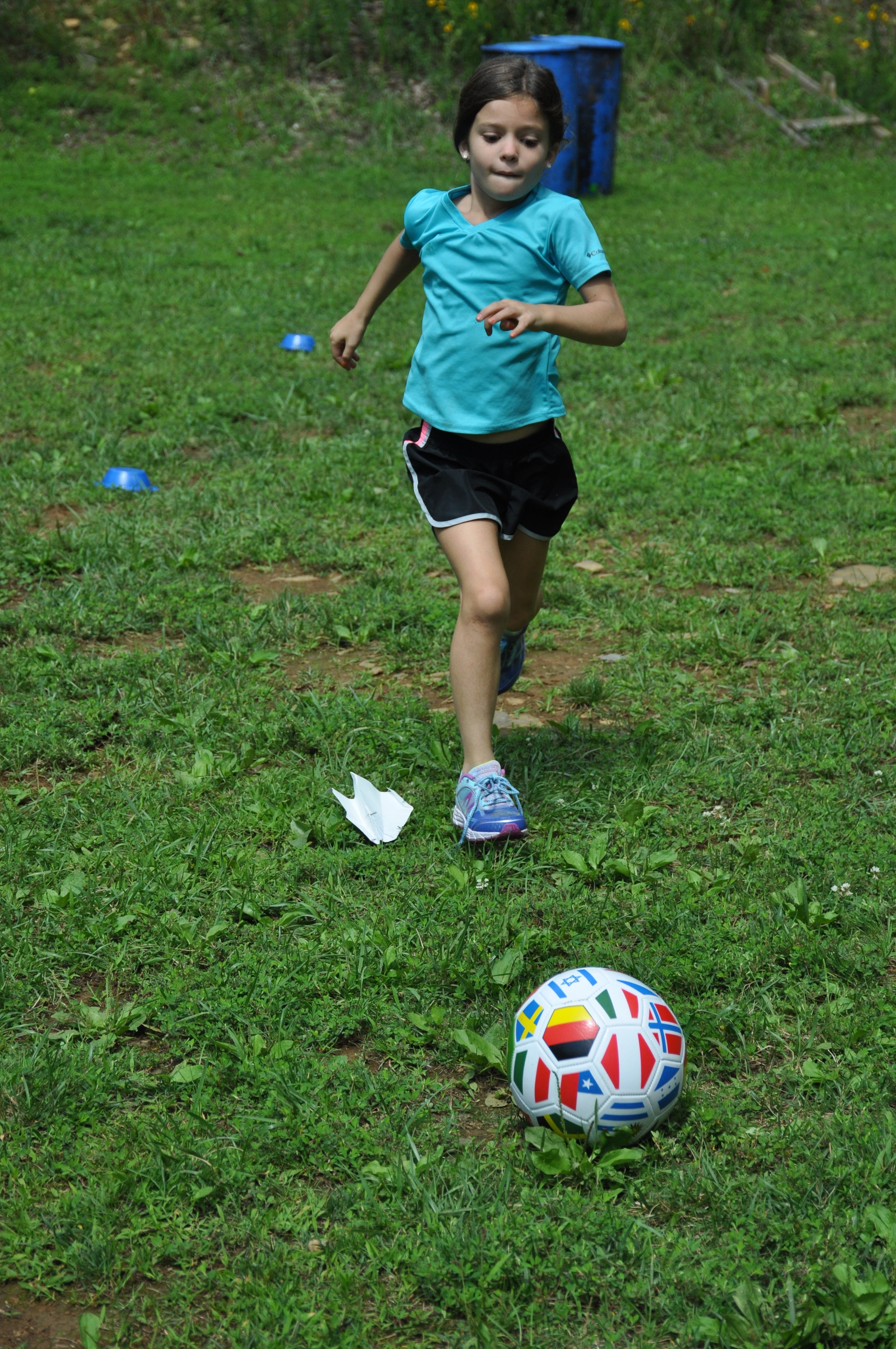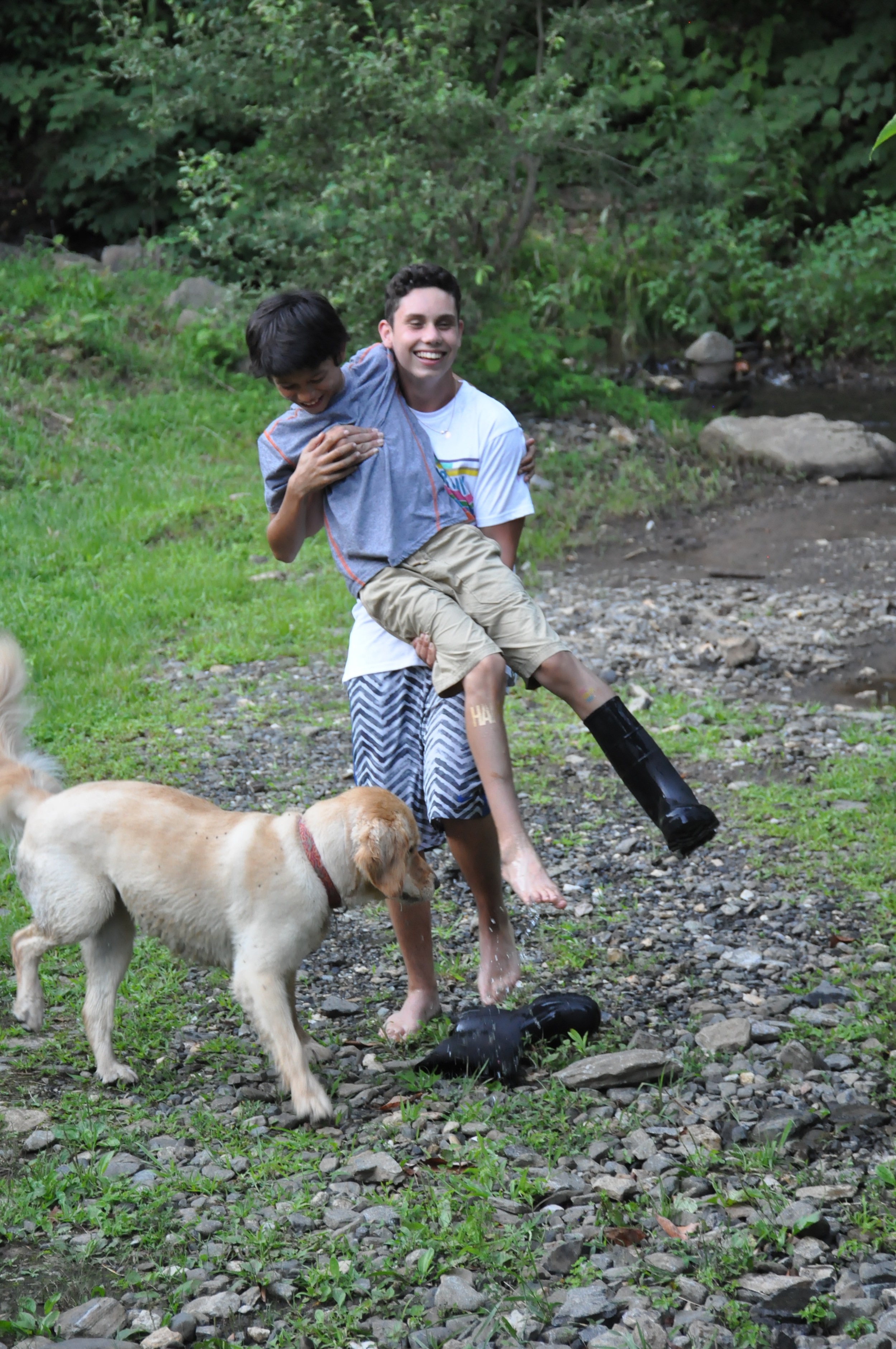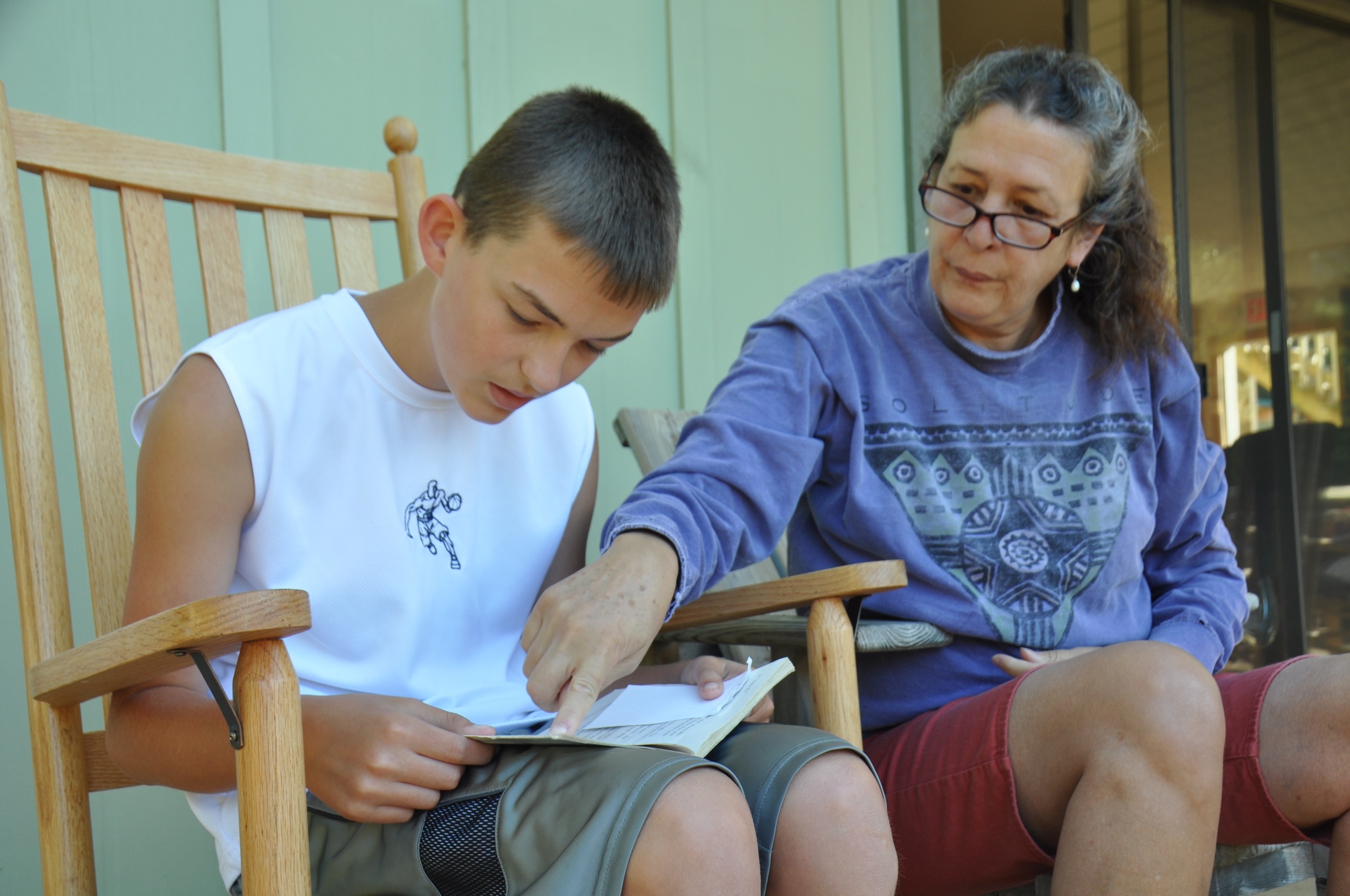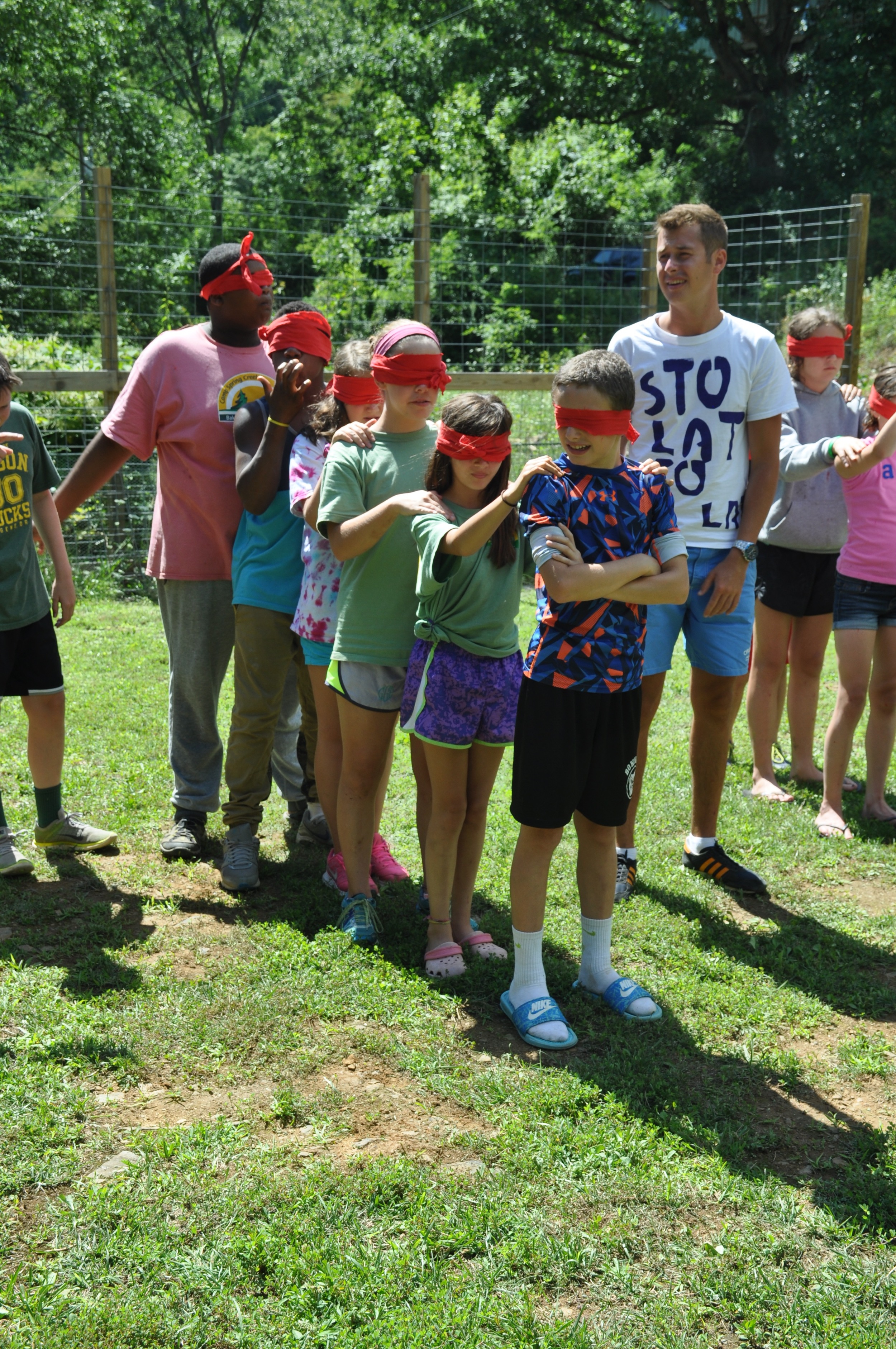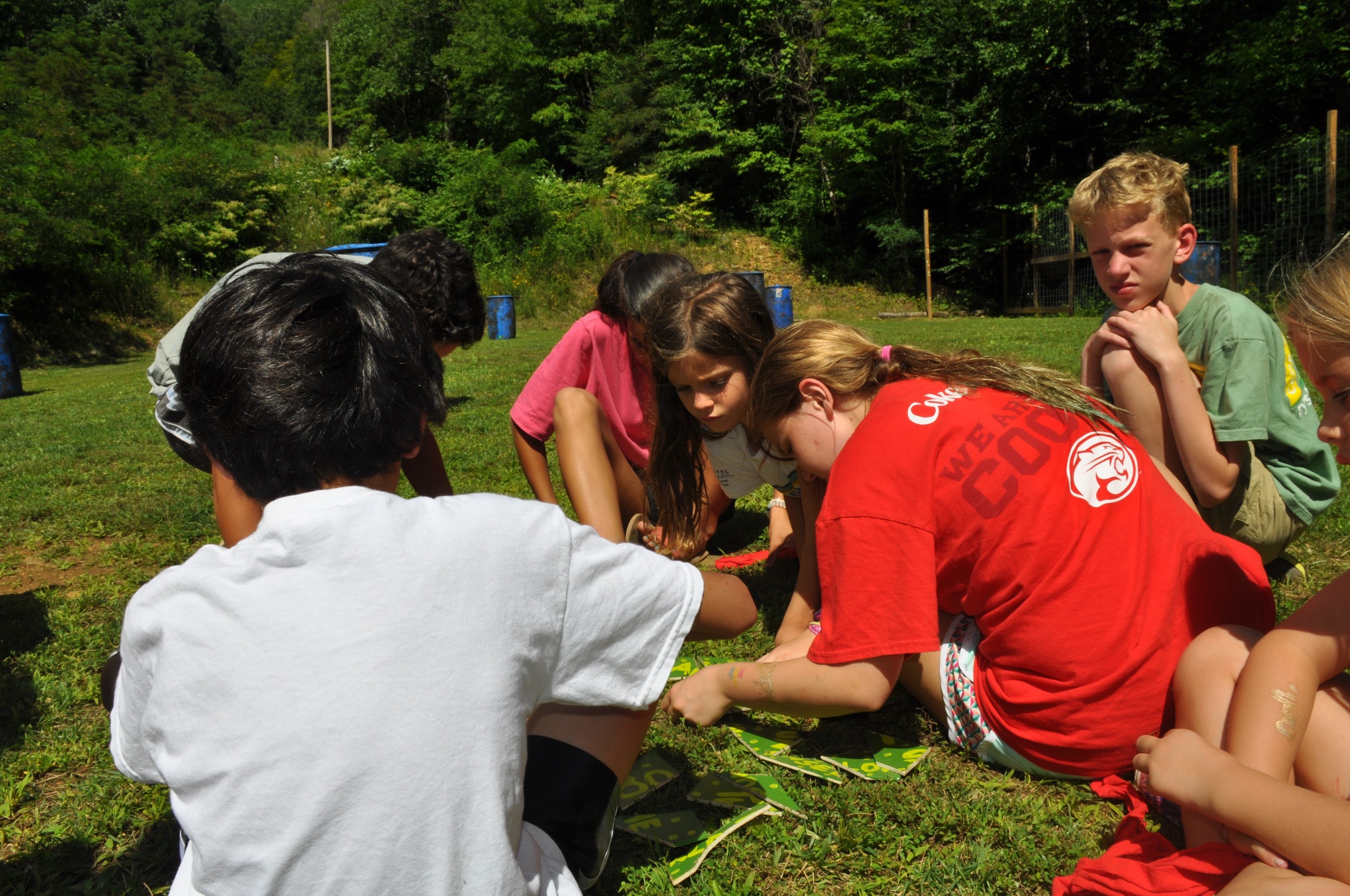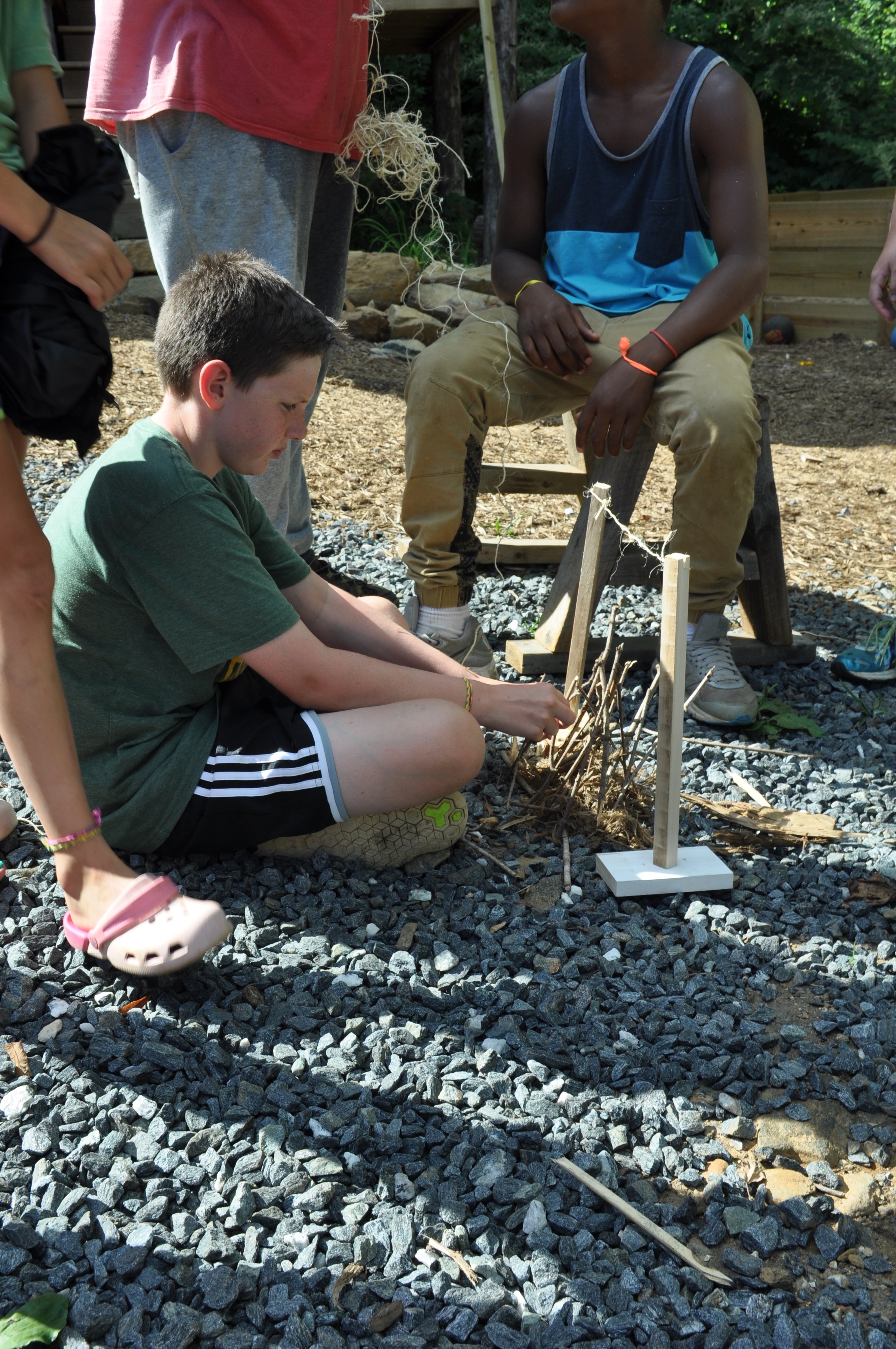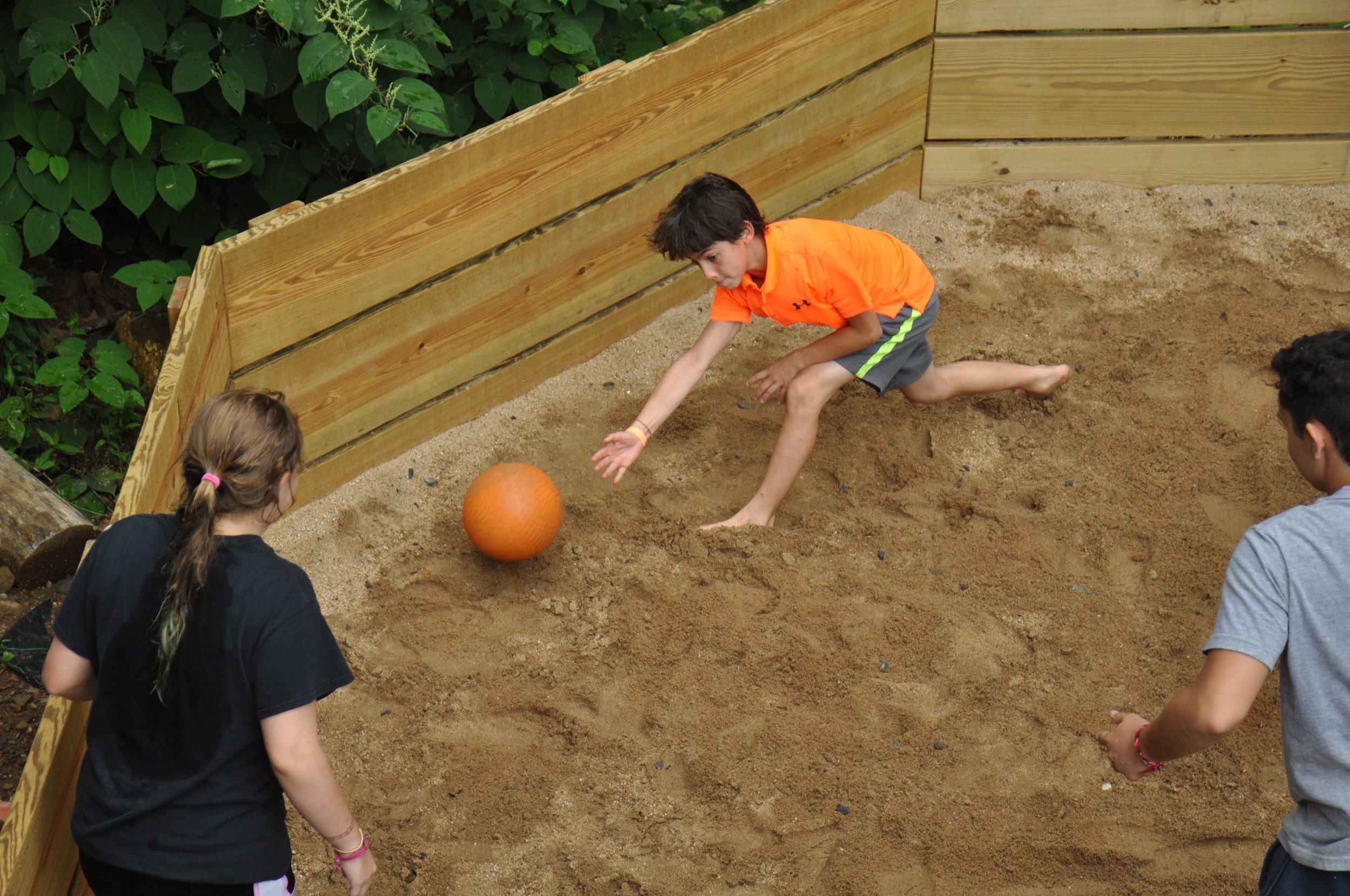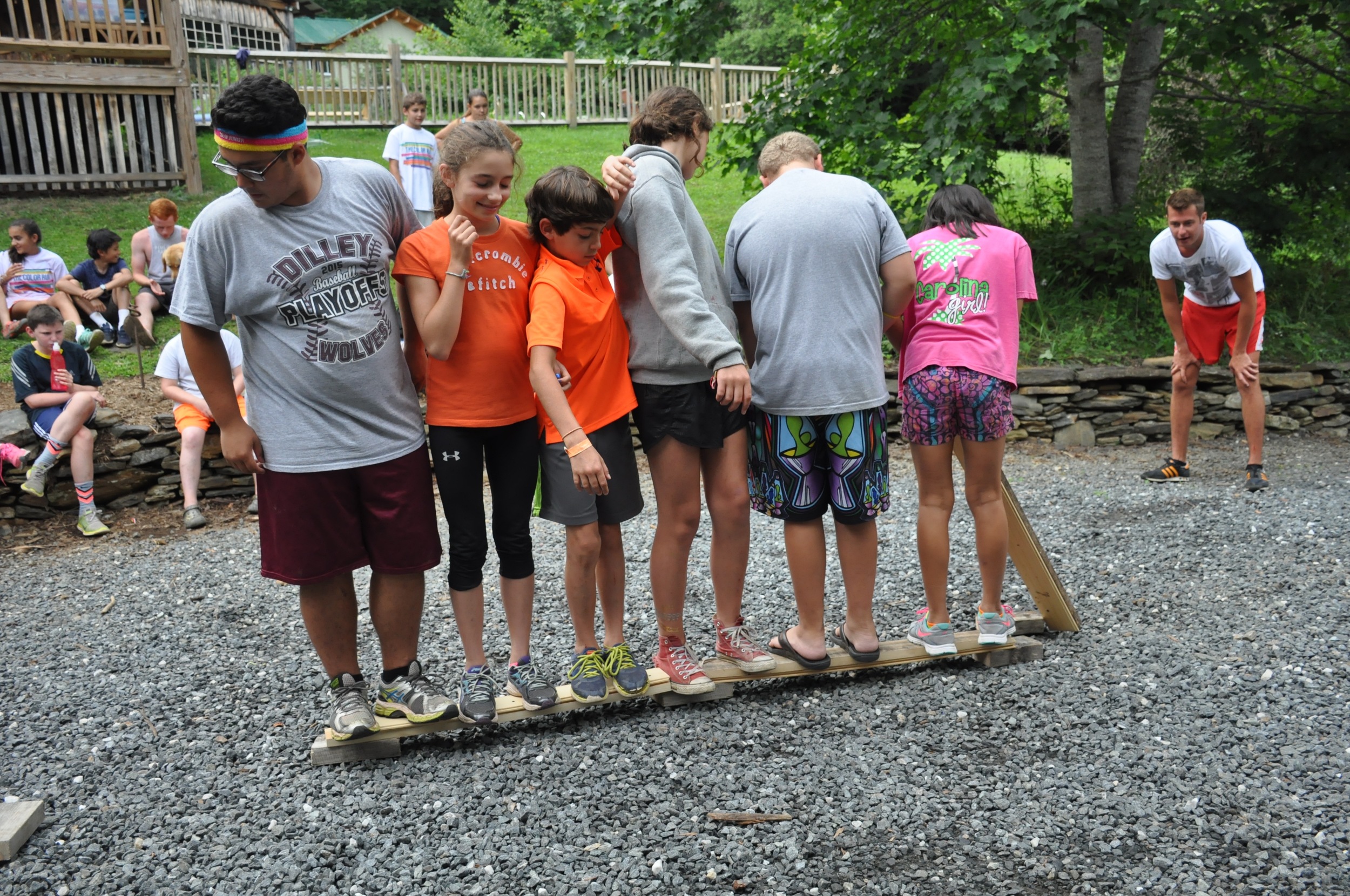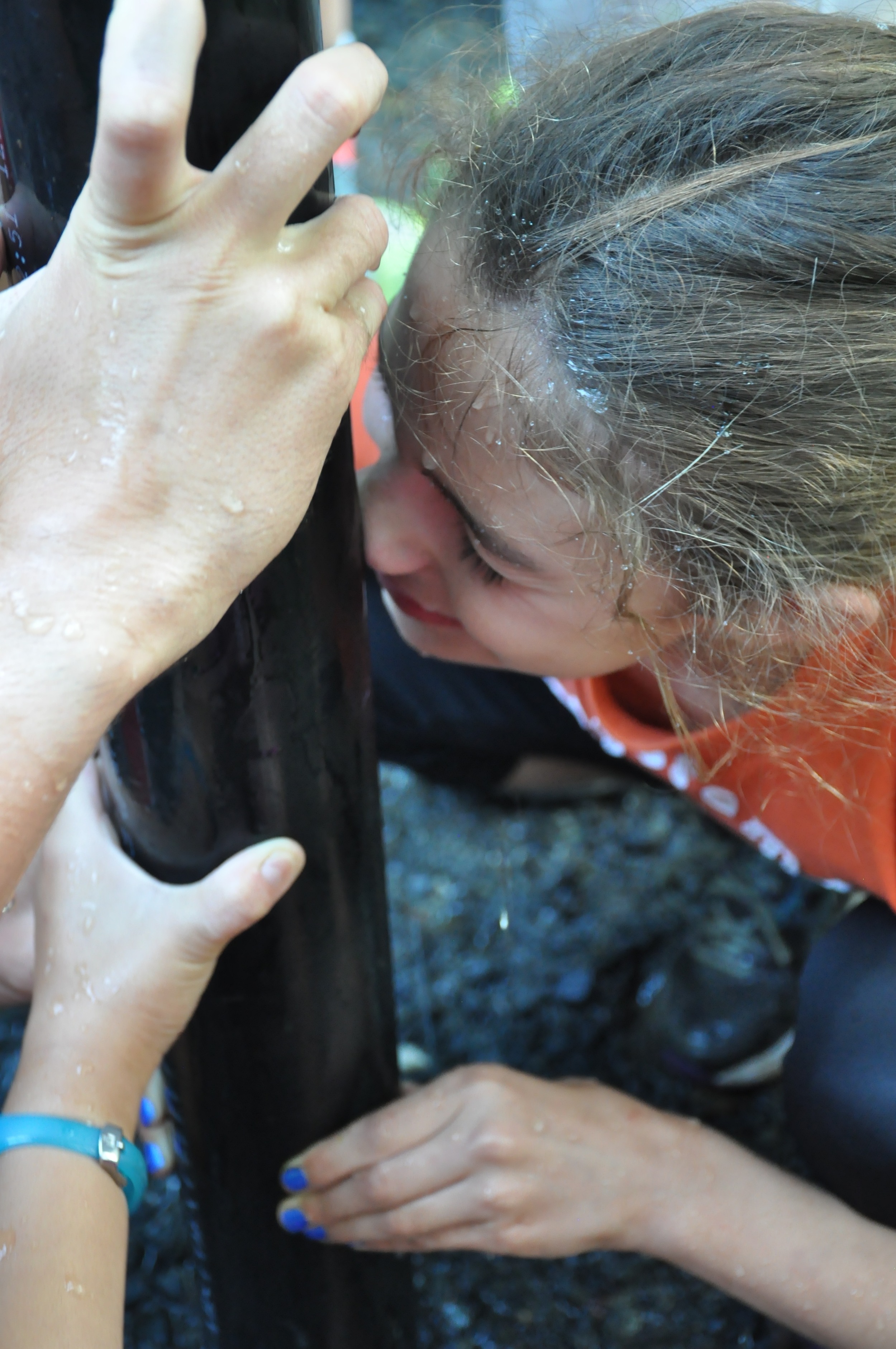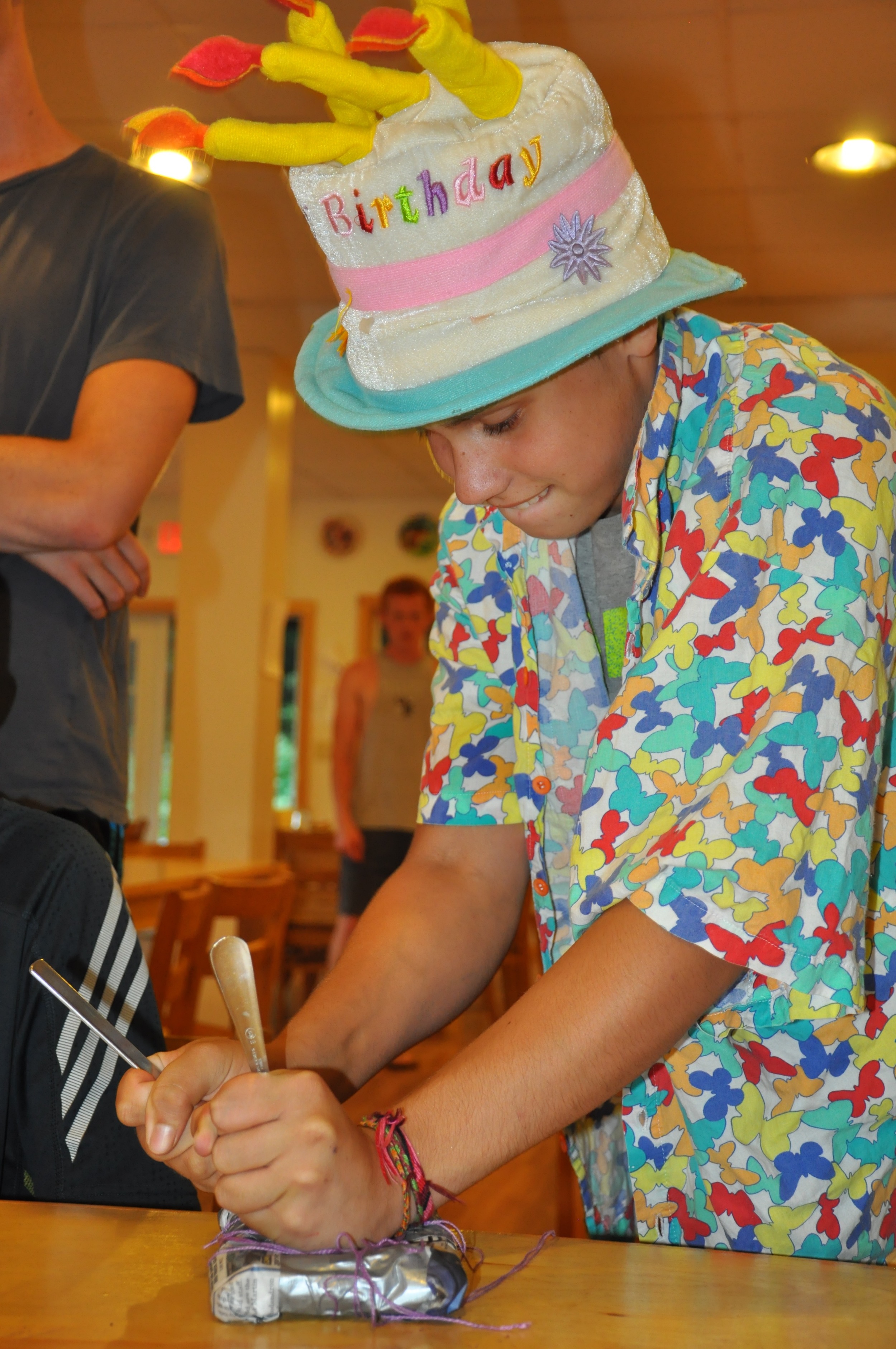Ah, the joy of serendipity! A few weeks back, we posted an image on Facebook of one our campers reading, something we often do. Here's where the gift of serendipity comes in. The book Olivia was reading, Confessions of a So-Called Middle Child, was written by Maria Lennon, a friend of Tutor Susan Rutter Santaniello. Long story short, Susan shared the post with Maria, who just so happens to be dyslexic. Maria was happy to share her experiences as a child who struggled with dyslexia and as a mother of a dyslexic child.
something we often do. Here's where the gift of serendipity comes in. The book Olivia was reading, Confessions of a So-Called Middle Child, was written by Maria Lennon, a friend of Tutor Susan Rutter Santaniello. Long story short, Susan shared the post with Maria, who just so happens to be dyslexic. Maria was happy to share her experiences as a child who struggled with dyslexia and as a mother of a dyslexic child.
![Cover[1]](http://static1.squarespace.com/static/572e2bdcd51cd4708373efa6/576841a83f405861058de241/576842573f405861058e0195/1466450519813/cover1.jpg?format=original) Camp: Did you go to a private school or work with someone who helped you, or did you just struggle it out?
Camp: Did you go to a private school or work with someone who helped you, or did you just struggle it out?
Maria: At first, I struggled. This was the 70s and not too many people were really aware of what dyslexia was. I went to a private K-12 school outside of Los Angeles called Chadwick and they were not prepared for someone like me or my two brothers. We all had learning difficulties and we were all bright and well aware of what the kids were saying about us. I heard "stupid" a lot. When I grew so frustrated I broke my pencil or tore my essay into shreds, I heard, "freak." My brothers heard worse because they acted out more. Like most girls, I went inward and hated myself while my brothers tended to blast out the world.
Camp: What was the greatest challenge you faced as a child with dyslexia?
Maria: Shame. Thinking something was wrong with me. Stupid. Here's the thing. Before people know you have learning differences, and REALLY can't spell CAT, they think you're being lazy or can't be bothered to study or you don't think it's important. I know I felt that way about my son when he was in kindergarten and first grade. After an hour of going over the word group of CAT, HAT and MAT, I literally cried because he would spell HAT, HOT or HIT. Once I understood he REALLY couldn't spell it because he couldn't hear it, I was fine. I stopped being mad. I got help for him.
Camp Spring Creek: Did other kids make fun of you?
Maria: Oh, yeah. By the time I was in third grade, things were really bad. I knew with certainty that I was the dumbest kid in my entire class. It's funny, my son who is dyslexic and diagnosed with ADD also had the roughest time in third grade. I still remember the terror that spread through me when the teacher made eye contact. I would look away as fast as I could, close my eyes, and plead, "Oh God, no, please let her not call on me."
It's amazing the collateral damage of these so-called language-based learning difficulties. You don't get picked on for sports teams for some reason. You don't have tons of friends. You don't have a lot of confidence. You, in many ways, learn to stand back and become an observer of life rather than a participant.
But then something amazing happened. My teacher, my amazing teacher SAW ME. Her name was Jean Wehrmeister and she was the first person who said to me, "JUST BECAUSE YOU SEE THE WORLD DIFFERENTLY DOESN'T MEAN YOU ARE STUPID."
When the kids persisted in their calls of stupid and retard, she did an exercise in class and had everyone hold up a mirror on their paper and write what they saw. She told them this was the way dyslexics saw words and asked them to imagine how frustrating it must be. She was so ahead of her time.
Camp: What were some of the tricks you learned to help yourself?
Maria: I was extremely fortunate because my mother understood what was going on and took me and my brothers to educational therapists after school. I learned a number of tricks at the center I went to. My big area was dysgraphia so writing things from the board and onto my paper caused me great anxiety. My tutor, Jeanette Kowell, would teach me little tricks to double check my copying, like using my voice, saying things out loud so I could hear the words and remember that way as well. Looking back now, I realize that many of the so-called tricks she was teaching me really revolved around two basic concepts:
- be patient with yourself
- be kind to yourself
I believe these two very basic concepts helped me most.
Camp: Do you think you've discovered any benefits of being dyslexic?
Maria Lennon: Oh, God, yes. Everything I am most proud of about myself stems from being dyslexic. I am so determined. I am such a hard worker. I am used to putting in double the amount of time my friends put in to achieve the same results. And that's okay. I am compassionate because I know what it feels like to struggle. I am resourceful because I had to be all my life. I am an observer. I stand back and see things about people maybe others don't see. All of these qualities have made me a better person, better mother and better writer.
Camp Spring Creek: You became a writer, something that's so difficult for children with dyslexia - do you have any advice for them?
Maria Lennon: One of my favorite things is to talk to kids about how hard writing is. It's really hard. BUT, it seems like most kids with learning differences lean toward the creative. They have great ideas. They have compassion, which gives them insight into human nature. They are curious about others. That's about 90% of being a writer. The rest is getting it onto paper and that can be taught. It just may take them longer than most. But who cares when what they see is so much brighter?
Camp: Any thoughts as a parent of a child with dyslexia?
Maria: My third child has dyslexia and ADD. He repeated kindergarten. In first grade, he couldn't spell CAT and in second grade, he pretty much pulled his hoodie over his head and gave up. He was aware that he did not know the answer to anything. In his mind, he was the stupidest kid in the class and thought it was a secret he could hold onto if he could just hide in his sweatshirt. By third grade, he was hitting his head on the walls, hiding under his desk, in closets, running out of school. That's when we did the first IEP with his school. When they couldn't test for dyslexia or ADD, I called UCLA and we did outside testing.
He is now in fifth grade and this had been his best year so far. He says that doing the testing and being identified was the best that that happened to him. He learned he was not stupid and was, in fact, very smart, but saw things differently. Now he sees an educational therapist and is using the iPad for typing, which is great. The information he gets is broken down into smaller chunks. He is learning to ask for help. Kids might call him stupid, but he comes right back at them with 'I'm not stupid; I have dyslexia.' That shuts them up pretty quickly. I am so proud of him it makes me cry.
Camp: Most of us look back with nostalgia on our childhoods. Any thoughts you'd like to share?
Maria: When I published my first book in the Confessions of a So-Called Middle Child series, I got a message on Facebook. It started with 'you probably don't remember me, but I was your third grade teacher Mrs. Wehrmeister. I always knew you would do something special. I almost died. I wrote her back immediately and told her that not only did I remember her, I talked about her all the time. Every time I went to a school and talked to kids, I mentioned her name. It is the power of one person, my teacher, believing in me that made all the difference in my life.
Jean told me that she thought my next project should be for kids who struggle with reading. And guess what? That's what we're doing - an entire series of short, fun, adventure books for the kids who really have a hard time making the leap from graphic novels (think Wimpy Kid) to straight novels (think Harry Potter). Never more than 180 pages, a single plot line and lightly illustrated. I am also building an interactive reading APP to help them read it on their tablets.
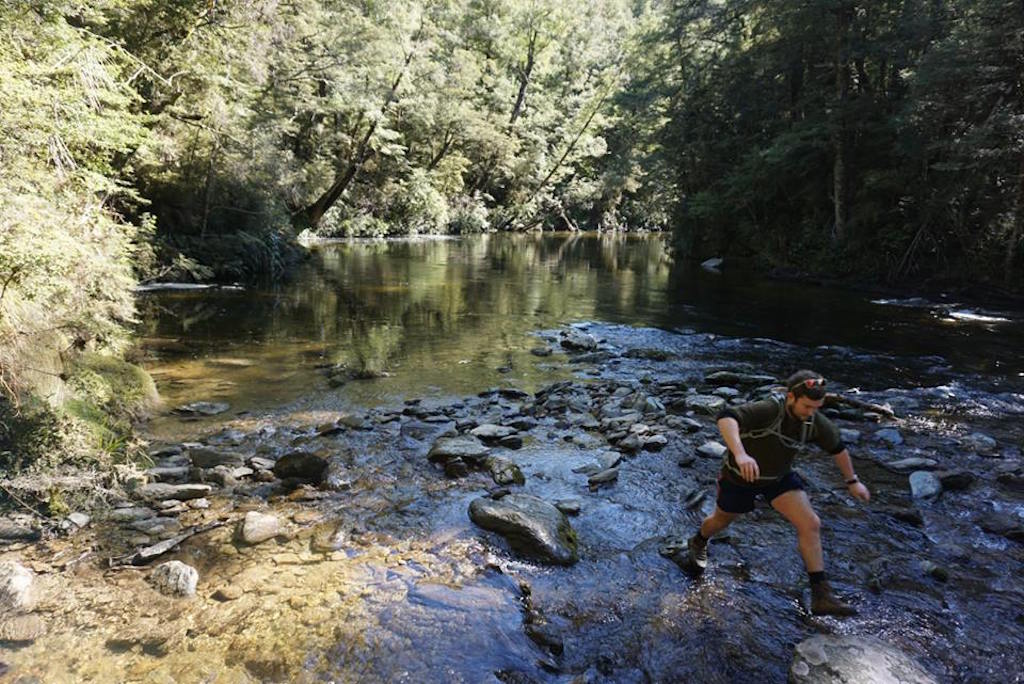 Who’s that intrepid adventurer, fording that mountain stream with ease? Why, it’s Ollie Todd, one of our first-year counselors at Camp Spring Creek. Ollie has the distinction of being the counselor who has the longest journey to make to get to Bakersville. It will take over a day to arrive from Invercargill, on the very bottom of New Zealand’s South Island. Invercargill has the distinction of being the southernmost and westernmost town in the country and one of the southernmost cities in the world. If you keep going south from there, you end up in Antarctica!
Who’s that intrepid adventurer, fording that mountain stream with ease? Why, it’s Ollie Todd, one of our first-year counselors at Camp Spring Creek. Ollie has the distinction of being the counselor who has the longest journey to make to get to Bakersville. It will take over a day to arrive from Invercargill, on the very bottom of New Zealand’s South Island. Invercargill has the distinction of being the southernmost and westernmost town in the country and one of the southernmost cities in the world. If you keep going south from there, you end up in Antarctica!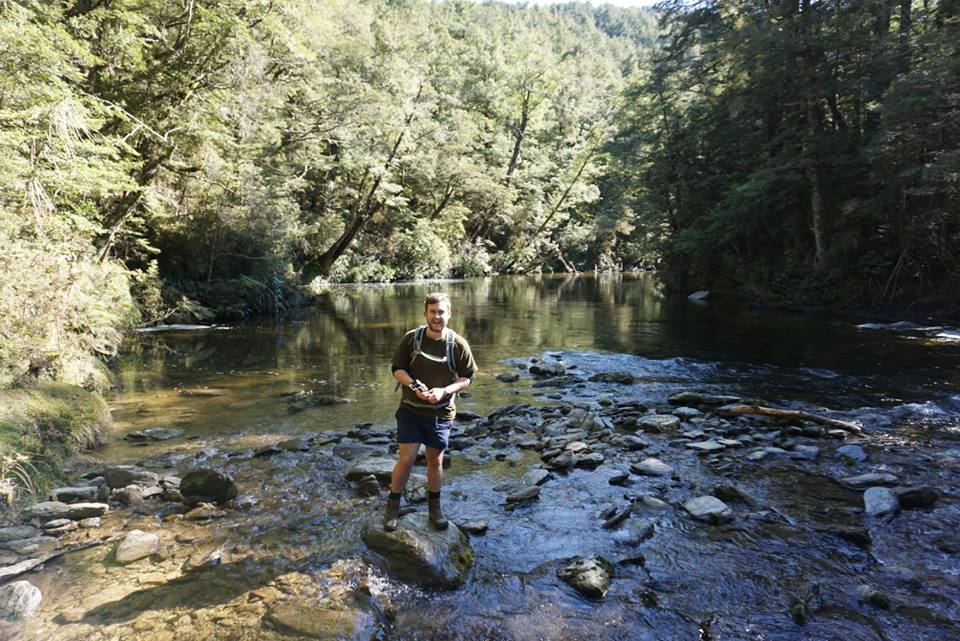

 The countdown is on! We’re just a few months away from the start of camp and we’re excited about the summer of ’16.
The countdown is on! We’re just a few months away from the start of camp and we’re excited about the summer of ’16.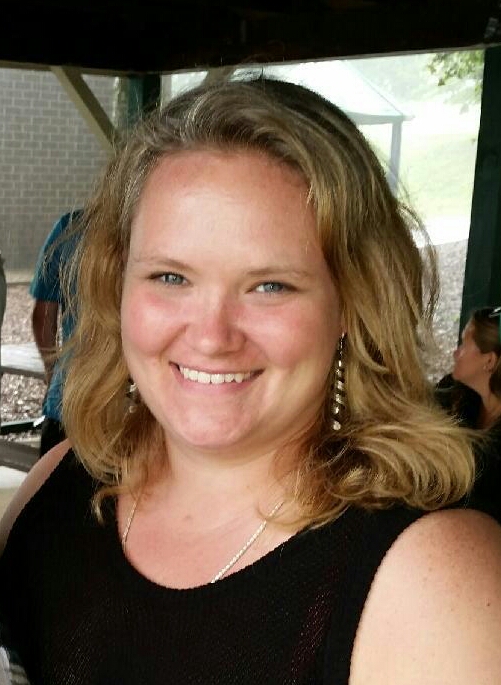 Technical Community College told her he had signed her up for Orton Gillingham Associate Level training with Susie van der Vorst. As she began looking through the training materials that had been forwarded her way, the English Language Learner teacher, who had recently been asked to take on GED classes as well, felt clearer.
“When I took a look at the notebook we’d be working from, I was overwhelmed,” Bridget says. “Once we got started, though, I realized every teacher and every student should have this understanding of language.”
Technical Community College told her he had signed her up for Orton Gillingham Associate Level training with Susie van der Vorst. As she began looking through the training materials that had been forwarded her way, the English Language Learner teacher, who had recently been asked to take on GED classes as well, felt clearer.
“When I took a look at the notebook we’d be working from, I was overwhelmed,” Bridget says. “Once we got started, though, I realized every teacher and every student should have this understanding of language.”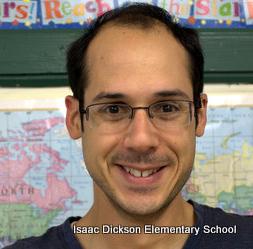 Scott Fisher’s enthusiasm is contagious. "The thing I love most about teaching is that moment of discovery, when children make connections and their little brains explode," says Scott, who teaches kindergarten at Asheville’s Isaac Dixon Elementary. "You can see it in their faces. It's priceless."
Scott also believes the Orton-Gillingham (O-G) training he recently went through is priceless. "O-G training has had a huge impact on my understanding of both the English language and developmentally appropriate teaching practices for reading and writing."
Scott Fisher’s enthusiasm is contagious. "The thing I love most about teaching is that moment of discovery, when children make connections and their little brains explode," says Scott, who teaches kindergarten at Asheville’s Isaac Dixon Elementary. "You can see it in their faces. It's priceless."
Scott also believes the Orton-Gillingham (O-G) training he recently went through is priceless. "O-G training has had a huge impact on my understanding of both the English language and developmentally appropriate teaching practices for reading and writing."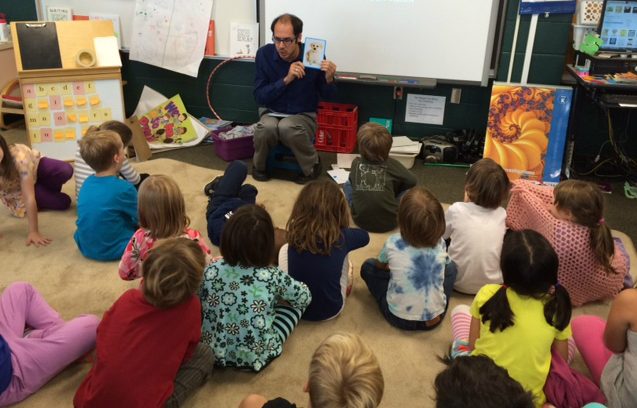
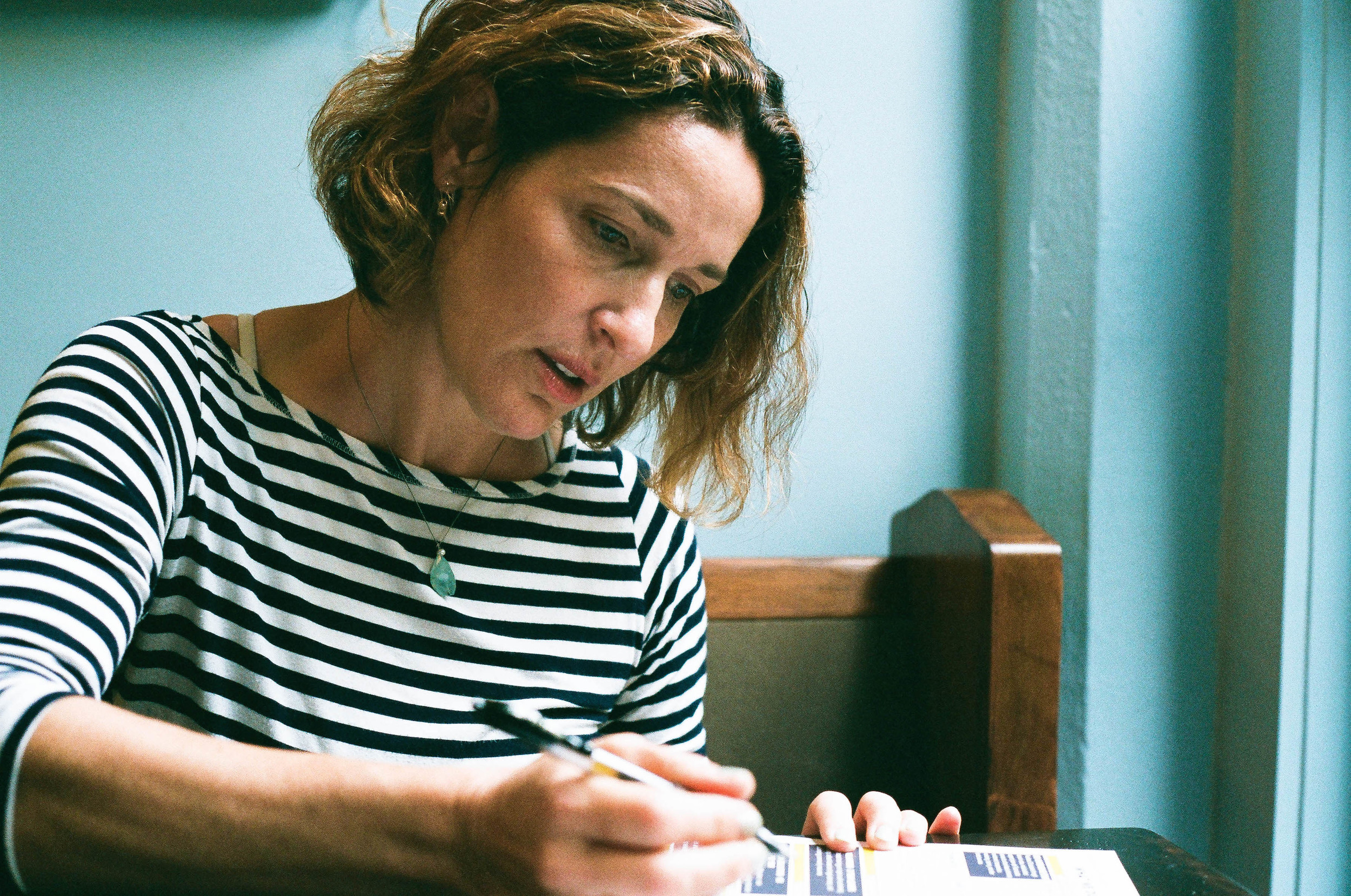 Jen Ramming had no idea that volunteering in a third grade classroom would change her life. “The dynamics fascinated me,” she recalls. “I asked the teacher what I could do to help. One day, she asked me to take three boys, who were disruptive, out of the classroom. We went to the library for books and curled up in the hallway where we took turns reading. Although I realized they were clearly bright and capable, not a single one of these young boys, whose lives had been touched by multi-generational poverty, knew more than five words by sight. One knew the alphabet, but not the sounds. They were learning to read while other kids were reading to learn.”
Jen Ramming had no idea that volunteering in a third grade classroom would change her life. “The dynamics fascinated me,” she recalls. “I asked the teacher what I could do to help. One day, she asked me to take three boys, who were disruptive, out of the classroom. We went to the library for books and curled up in the hallway where we took turns reading. Although I realized they were clearly bright and capable, not a single one of these young boys, whose lives had been touched by multi-generational poverty, knew more than five words by sight. One knew the alphabet, but not the sounds. They were learning to read while other kids were reading to learn.”![images[1]](http://static1.squarespace.com/static/572e2bdcd51cd4708373efa6/576841a83f405861058de241/576842583f405861058e01ad/1466450520273/images11.jpg?format=original) host of educational and enrichment opportunities. These opportunities, which range from tutoring to summer camp, are designed to help children begin to invest in themselves and ultimately break the cycle of multi-generational poverty. Jen is proud to serve as the organization’s executive director.
host of educational and enrichment opportunities. These opportunities, which range from tutoring to summer camp, are designed to help children begin to invest in themselves and ultimately break the cycle of multi-generational poverty. Jen is proud to serve as the organization’s executive director.![unnamed[1] (8)](http://static1.squarespace.com/static/572e2bdcd51cd4708373efa6/576841a83f405861058de241/576842583f405861058e01a7/1466450520160/unnamed1-8.jpg?format=original)
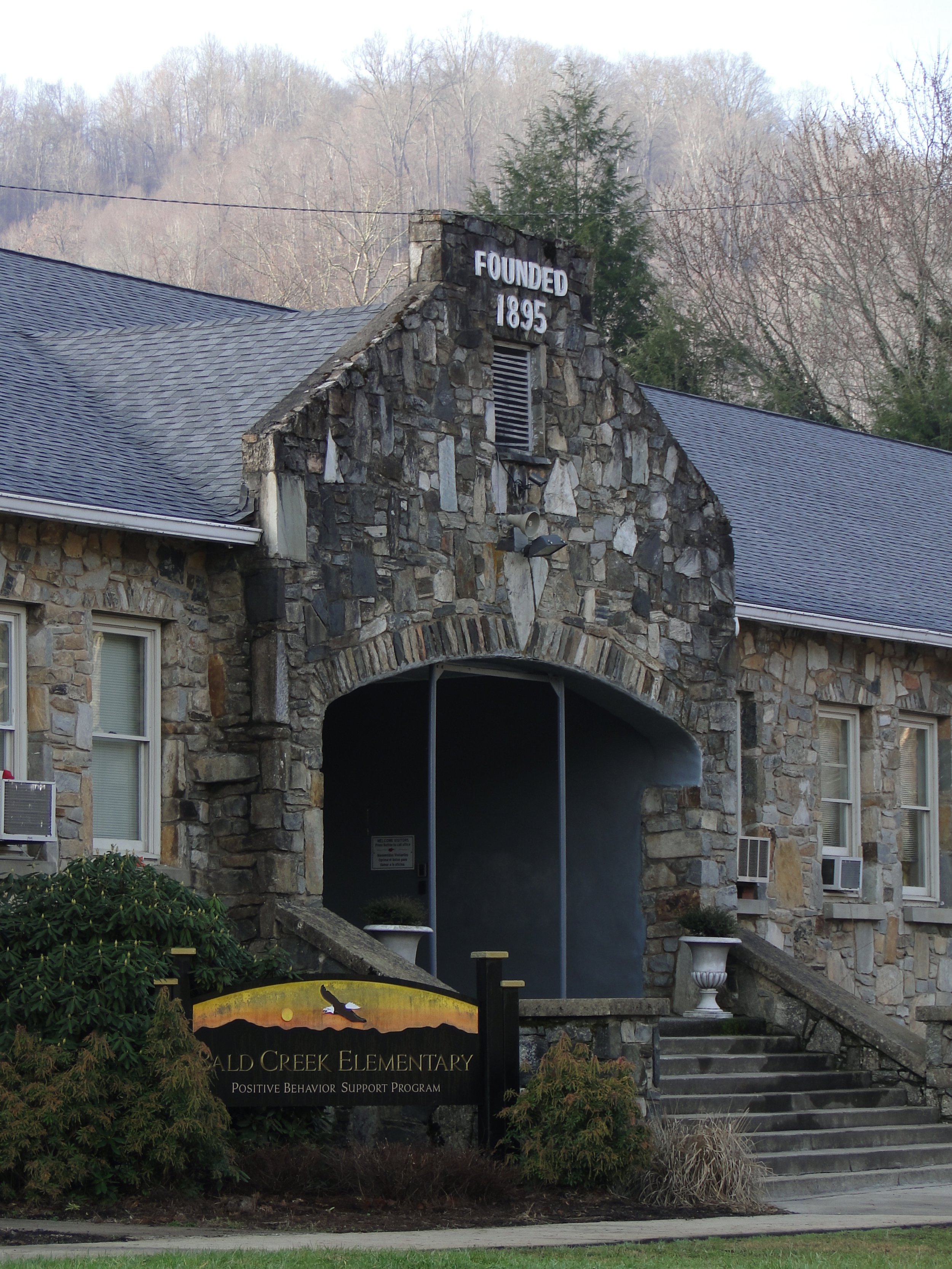 Sherry Robinson realized Bald Creek Elementary had some serious gaps in their literacy program. The Exceptional Children’s (EC) population was the highest in the county. Math scores were unacceptably low. The recently hired principal had been told the school was identified for needing improvement given poor test scores. The question she found herself asking - what was the problem and more importantly, how could she address the challenges?
Although she recognized the path toward academic success was going to be an arduous one, she was still shocked when her newest hire, 4th grade reading teacher Lori McCourry, stepped into her office and told her 13 of her 27 students were reading at only a first grade level.
Sherry Robinson realized Bald Creek Elementary had some serious gaps in their literacy program. The Exceptional Children’s (EC) population was the highest in the county. Math scores were unacceptably low. The recently hired principal had been told the school was identified for needing improvement given poor test scores. The question she found herself asking - what was the problem and more importantly, how could she address the challenges?
Although she recognized the path toward academic success was going to be an arduous one, she was still shocked when her newest hire, 4th grade reading teacher Lori McCourry, stepped into her office and told her 13 of her 27 students were reading at only a first grade level.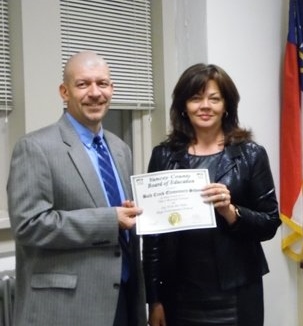
![3052313[1]](http://static1.squarespace.com/static/572e2bdcd51cd4708373efa6/576841a83f405861058de241/576842583f405861058e01a5/1466450520121/30523131.jpg?format=original)
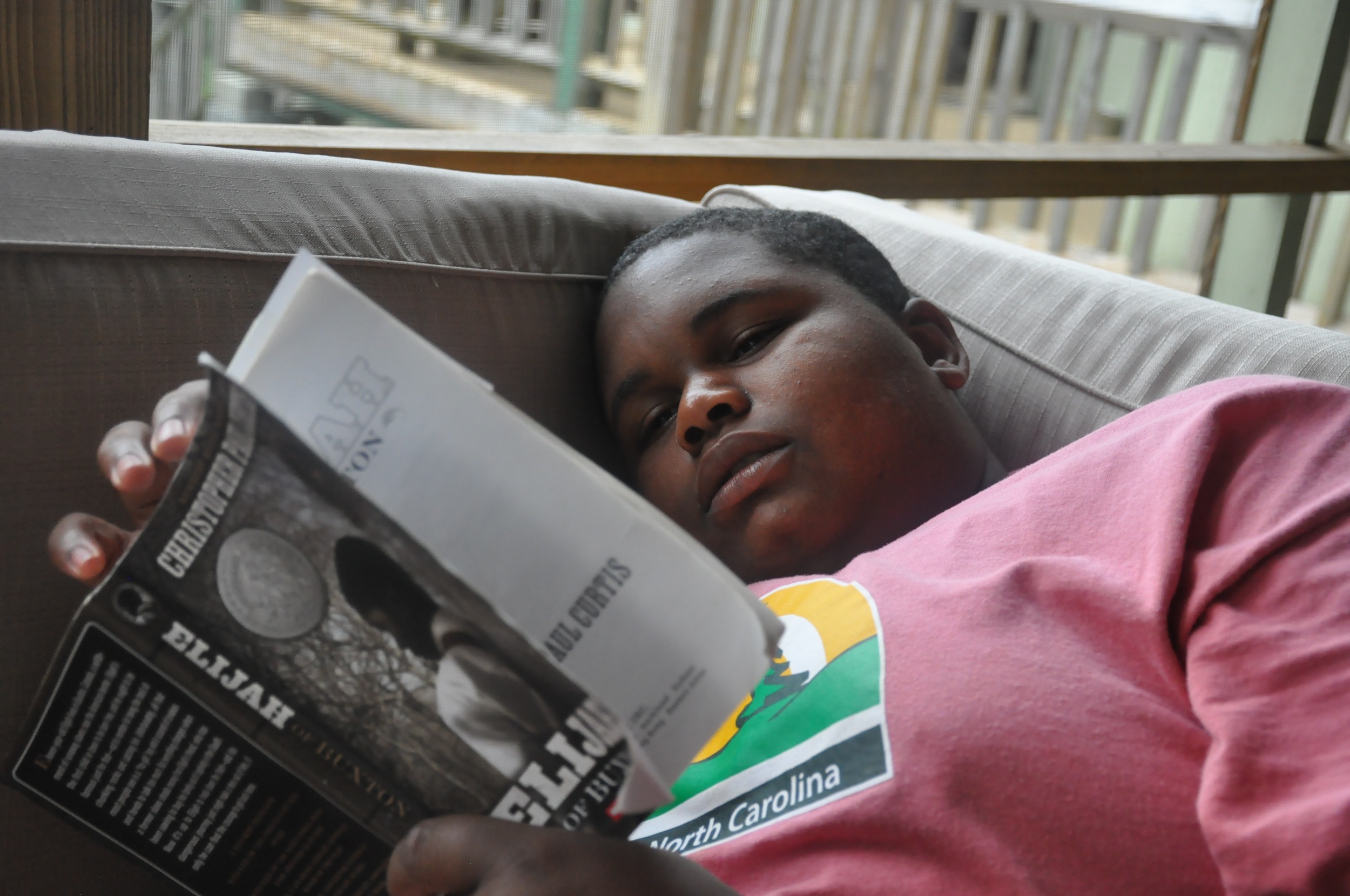 OpenDoors of Asheville is a remarkable non-profit organization that helps local children reach their potential with individual support and a host of educational and enrichment opportunities. These opportunities are designed to help the children begin to invest in themselves and ultimately break the cycle of multi-generational poverty.
OpenDoors of Asheville is a remarkable non-profit organization that helps local children reach their potential with individual support and a host of educational and enrichment opportunities. These opportunities are designed to help the children begin to invest in themselves and ultimately break the cycle of multi-generational poverty.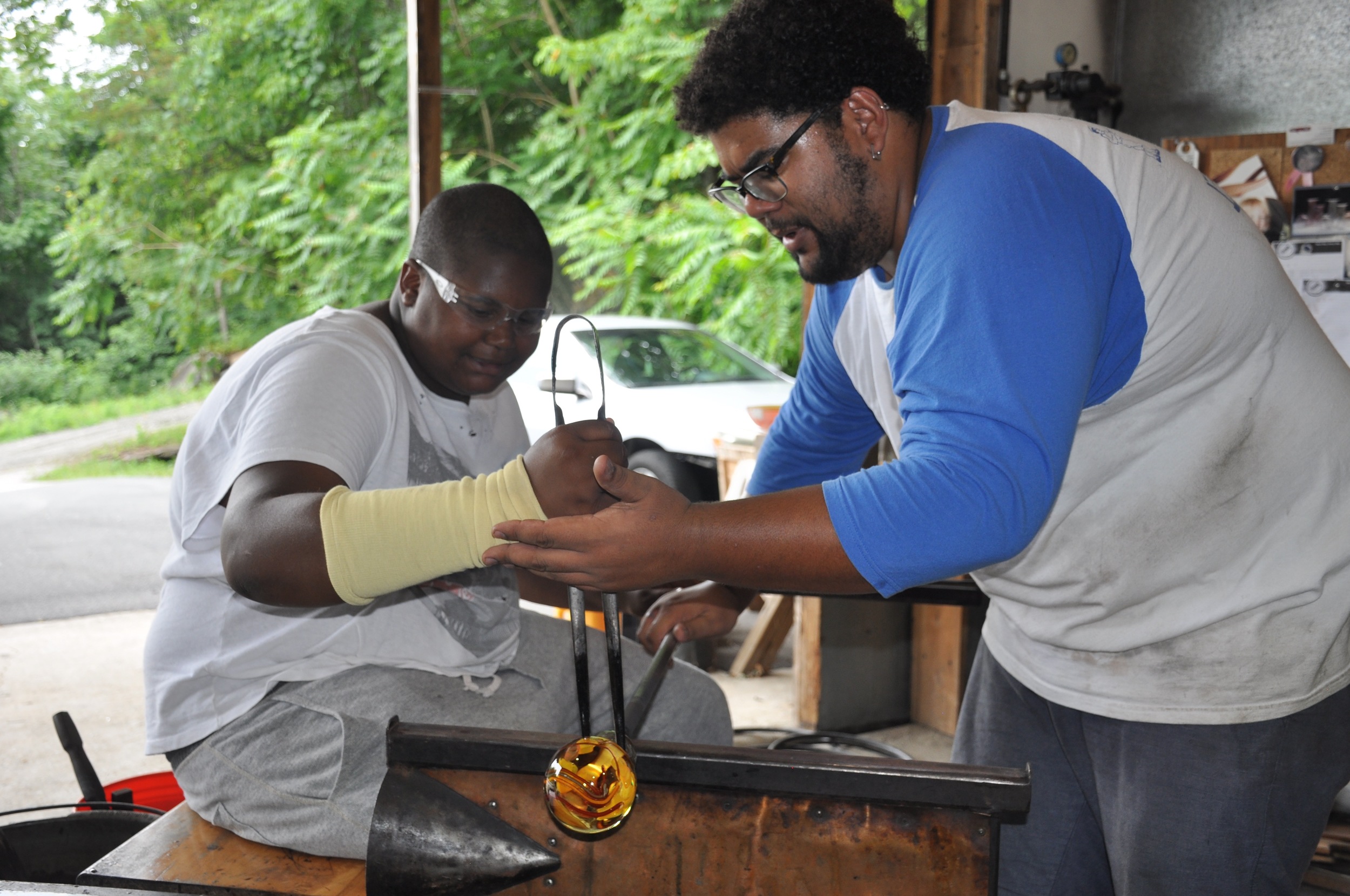 Tyion Lucas just finished his 2nd summer at Camp Spring Creek. OpenDoors Board Member and Team Leader Denise Turner remembers hearing about Tyion’s fears concerning his participation in an upcoming spelunking adventure. Initially, he insisted he wasn’t going to repel into a dark cave, let alone jump into an underground lake. After discovering one of the staff members, who was also afraid, was going to participate, he decided to open himself to the possibilities. He believes his courage paid off. In addition to this adventure, Tyion tried other new things like whitewater rafting, Asheville’s Color Run 5K and glass blowing.
Tyion Lucas just finished his 2nd summer at Camp Spring Creek. OpenDoors Board Member and Team Leader Denise Turner remembers hearing about Tyion’s fears concerning his participation in an upcoming spelunking adventure. Initially, he insisted he wasn’t going to repel into a dark cave, let alone jump into an underground lake. After discovering one of the staff members, who was also afraid, was going to participate, he decided to open himself to the possibilities. He believes his courage paid off. In addition to this adventure, Tyion tried other new things like whitewater rafting, Asheville’s Color Run 5K and glass blowing.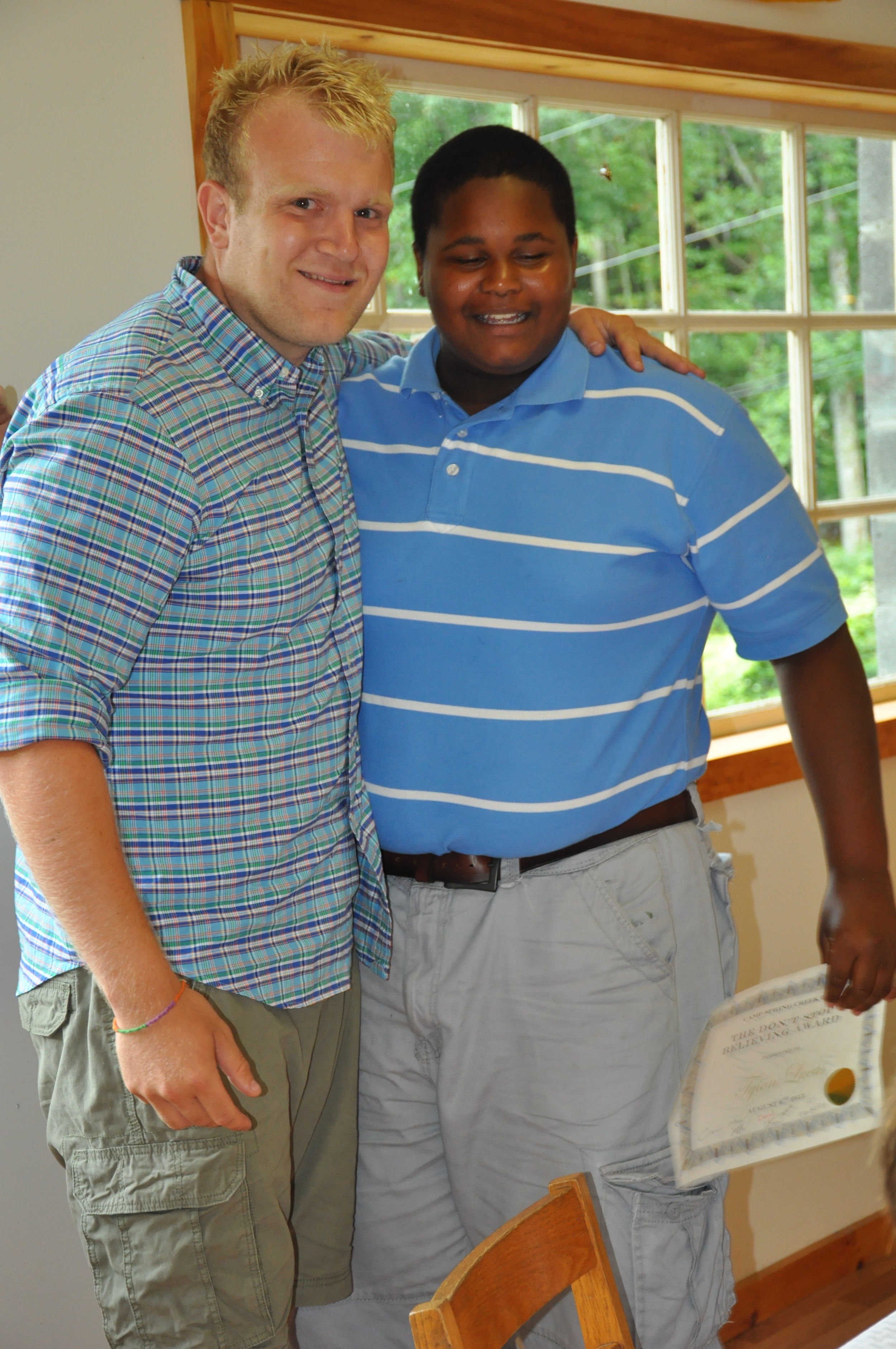 continues to make progress and his confidence is growing,” Denise says. “He’s got a great sense of humor and isn’t afraid to use it. At his school, he was asked to join the football team and is experiencing great success. A page is clearly being turned for Tyion. I can’t wait to see the next chapter.”
continues to make progress and his confidence is growing,” Denise says. “He’s got a great sense of humor and isn’t afraid to use it. At his school, he was asked to join the football team and is experiencing great success. A page is clearly being turned for Tyion. I can’t wait to see the next chapter.”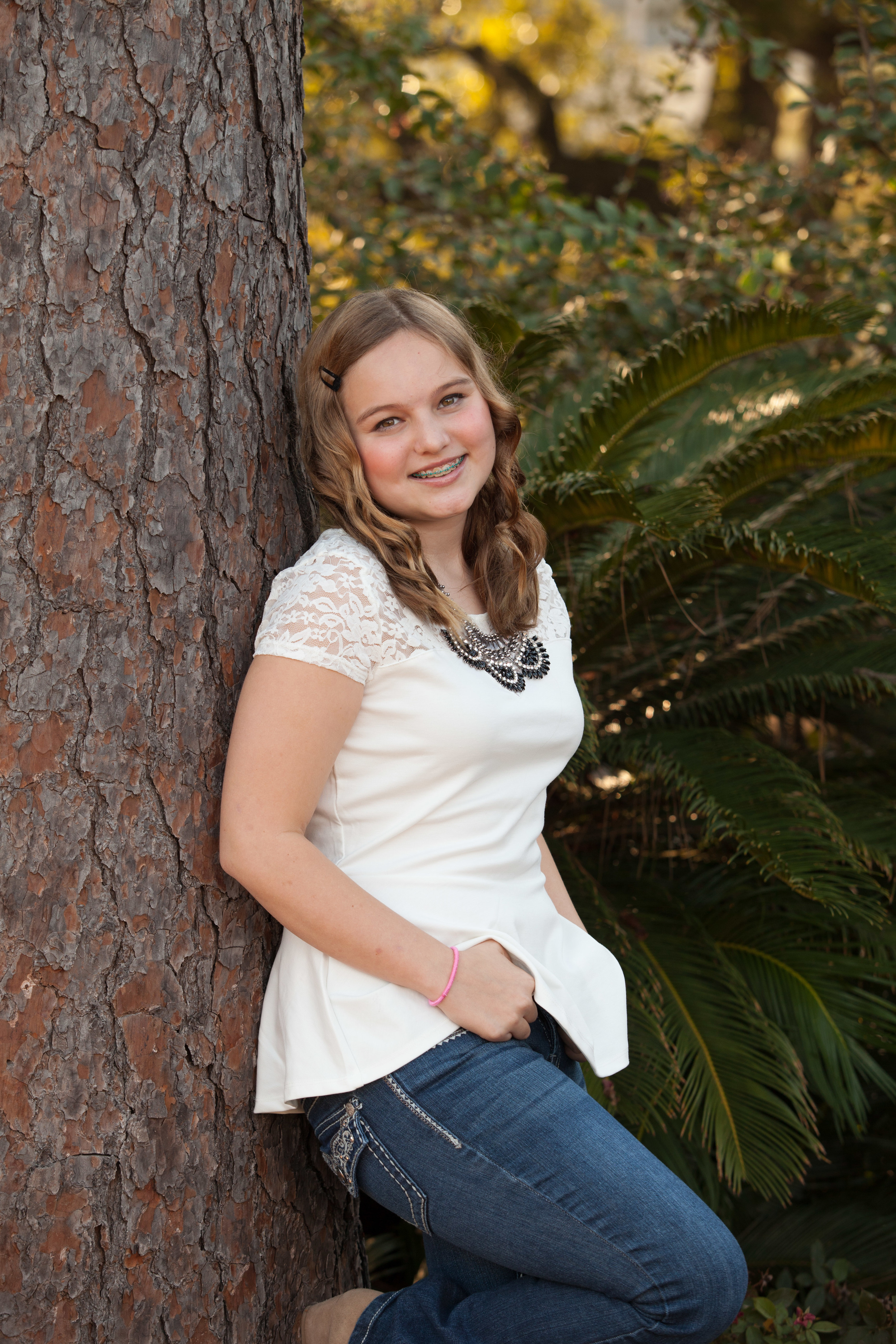


![Cover[1]](http://static1.squarespace.com/static/572e2bdcd51cd4708373efa6/576841a83f405861058de241/576842573f405861058e0195/1466450519813/cover1.jpg?format=original)
![unnamed[1] (4)](http://static1.squarespace.com/static/572e2bdcd51cd4708373efa6/576841a83f405861058de241/576842573f405861058e0191/1466450519671/unnamed1-4.jpg?format=original)
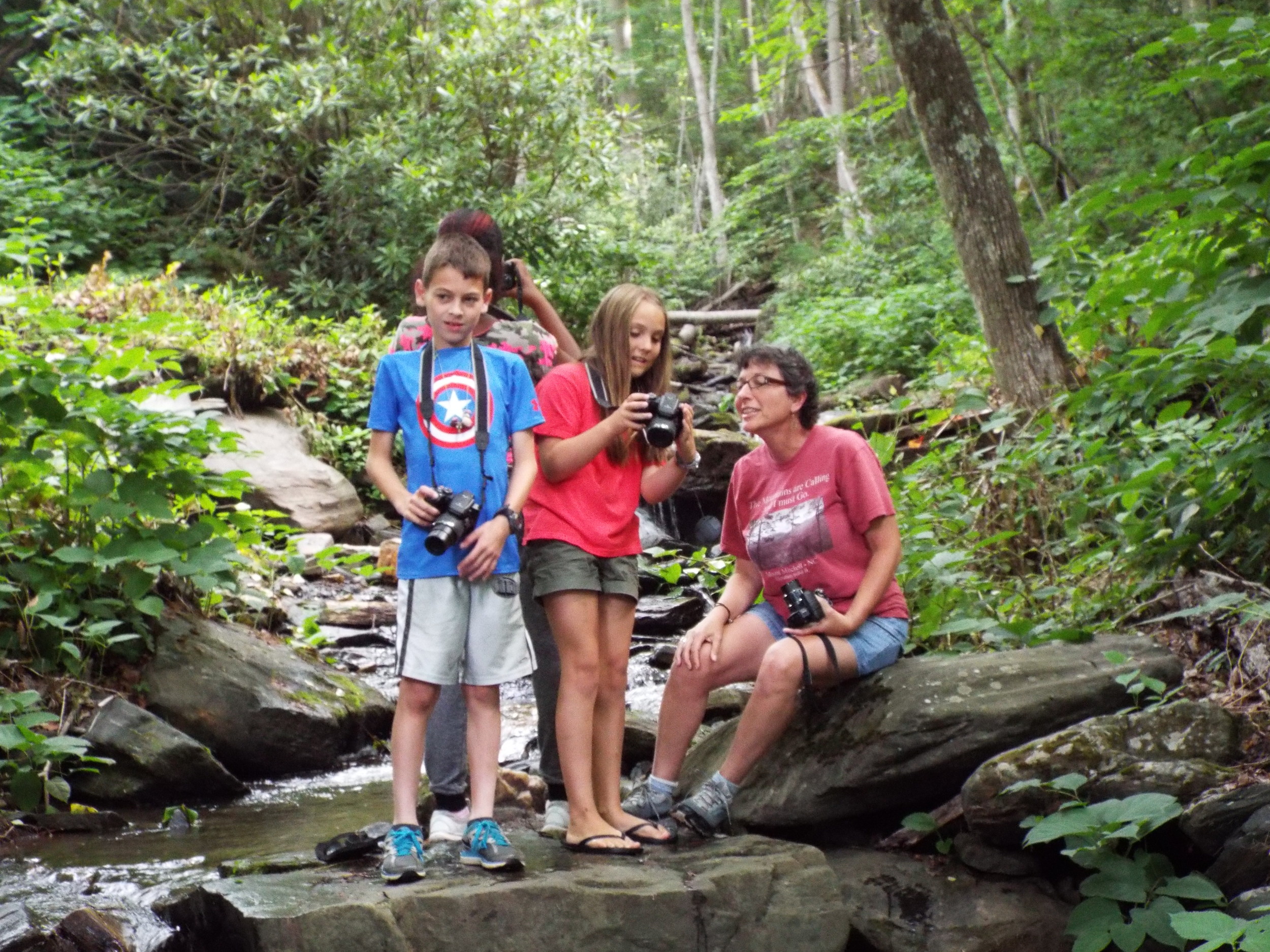
![11836790_10152903791125448_4283862420779050674_n[1]](http://static1.squarespace.com/static/572e2bdcd51cd4708373efa6/576841a83f405861058de241/576842573f405861058e018b/1466450519554/11836790_10152903791125448_4283862420779050674_n1.jpg?format=original)
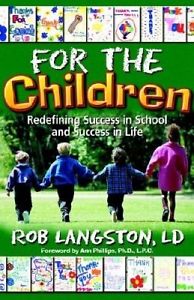 Today's book rec comes from Susie, who suggests that the beginning of the school year is always a great time to review your goals to work as a team with you child's teachers, school administrators, or IEP team members. There can be many barriers, but there can also be many successes. Clear communication, goals, and expectataions along with a positive outlook are keys to success. After all, everyone has the same goal: to get your child the best educational opportunities possible.
To that end Rob Langston's For the Children: Redefining Success in School and Success in Life is worth taking a look at. With so many messages from schools, from home, from media, and from research, and from society in general, sometimes it's hard to know "how to be." The author's Amazon page notes, "In this book I tell you about my struggles and accomplishments as a child and an adult with Dyslexia, with the hope that it will give you the strength and encouragement to help yourself or a loved one. I strongly urge you to read this book and apply it to your life. Don't ever give up on your dreams and always believe in yourself." Read more
Today's book rec comes from Susie, who suggests that the beginning of the school year is always a great time to review your goals to work as a team with you child's teachers, school administrators, or IEP team members. There can be many barriers, but there can also be many successes. Clear communication, goals, and expectataions along with a positive outlook are keys to success. After all, everyone has the same goal: to get your child the best educational opportunities possible.
To that end Rob Langston's For the Children: Redefining Success in School and Success in Life is worth taking a look at. With so many messages from schools, from home, from media, and from research, and from society in general, sometimes it's hard to know "how to be." The author's Amazon page notes, "In this book I tell you about my struggles and accomplishments as a child and an adult with Dyslexia, with the hope that it will give you the strength and encouragement to help yourself or a loved one. I strongly urge you to read this book and apply it to your life. Don't ever give up on your dreams and always believe in yourself." Read more 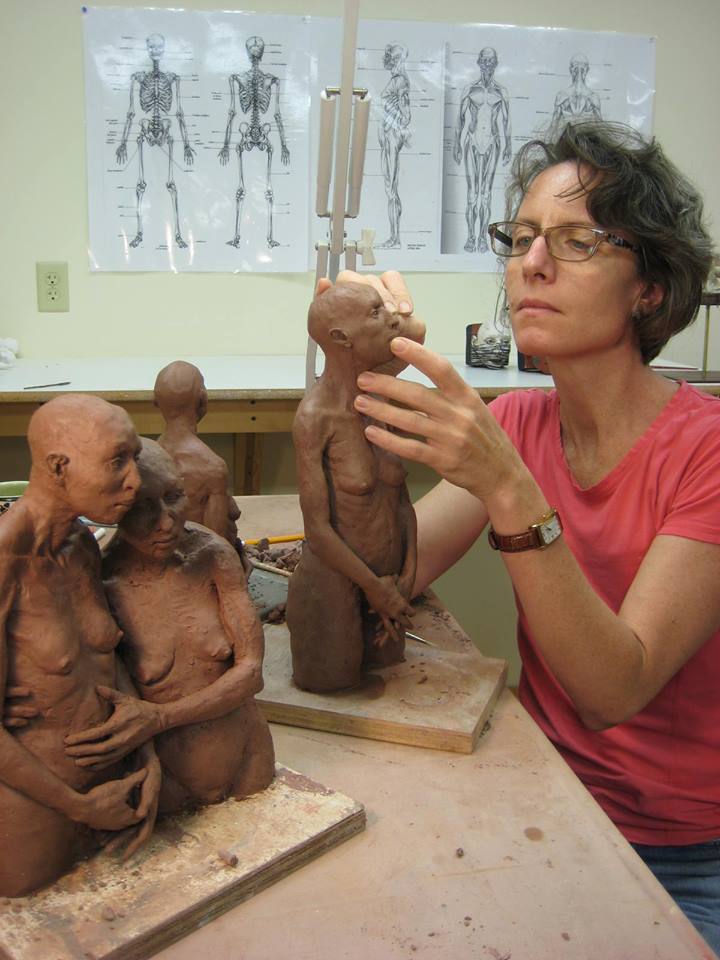 “The biggest thing for Ben at camp was that he was surrounded by other children with dyslexia and so he found kids who look at the world in the same ways that he does. It was an amazing time where there was no stigma attached to him. Instead, the message was that you have to advocate for yourself and remember that the sky is the limit. It was amazing, as a mother, to watch him go through that. He came home and told me, ‘Now I don’t feel like I’m stupid.’ He’s had that thought since first grade, but now he doesn’t. There truly is a stigma with this kind of thing in the schools, but now, Ben knows that he learns differently and he knows he has strengths.”
—
“The biggest thing for Ben at camp was that he was surrounded by other children with dyslexia and so he found kids who look at the world in the same ways that he does. It was an amazing time where there was no stigma attached to him. Instead, the message was that you have to advocate for yourself and remember that the sky is the limit. It was amazing, as a mother, to watch him go through that. He came home and told me, ‘Now I don’t feel like I’m stupid.’ He’s had that thought since first grade, but now he doesn’t. There truly is a stigma with this kind of thing in the schools, but now, Ben knows that he learns differently and he knows he has strengths.”
—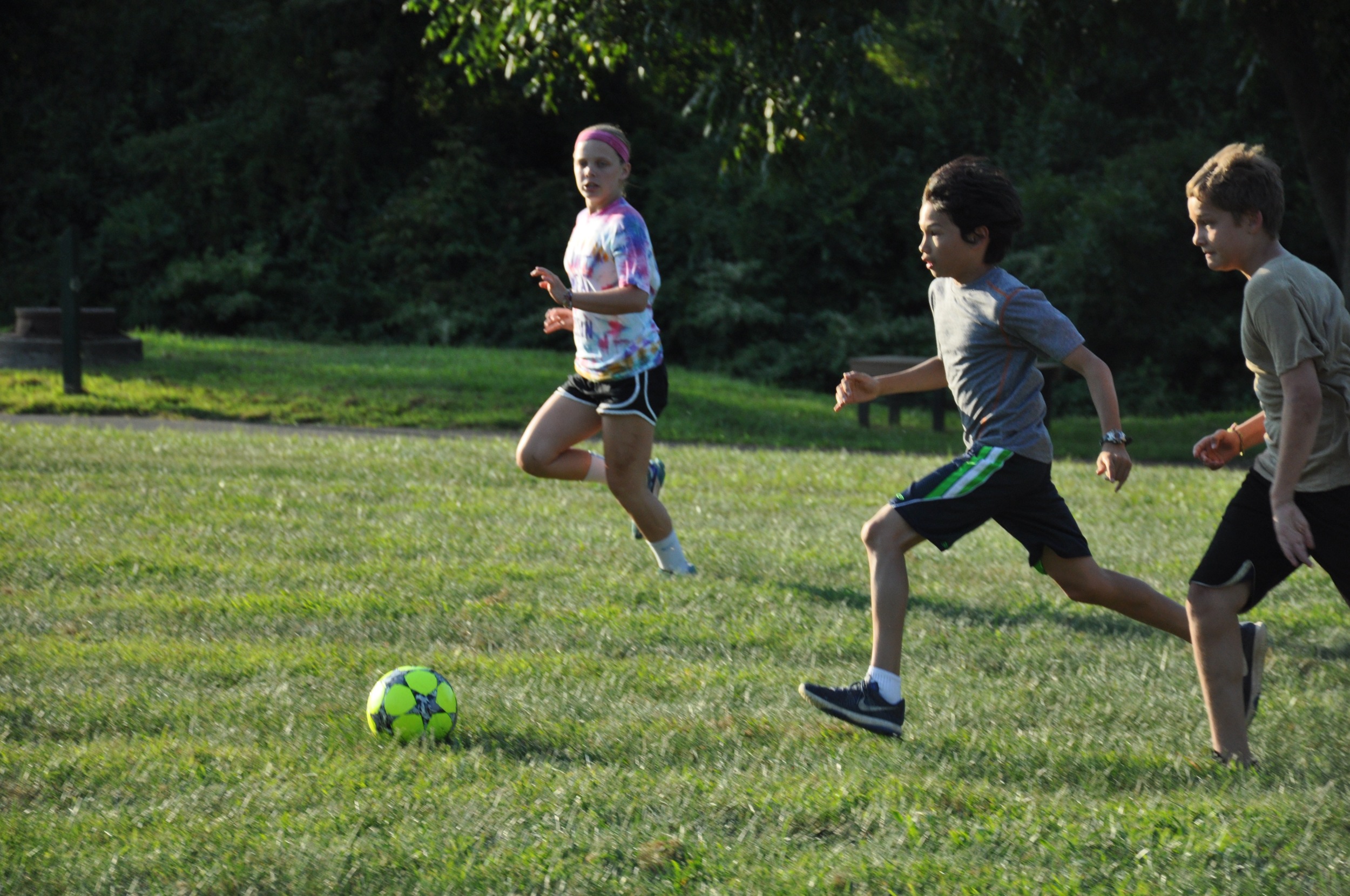

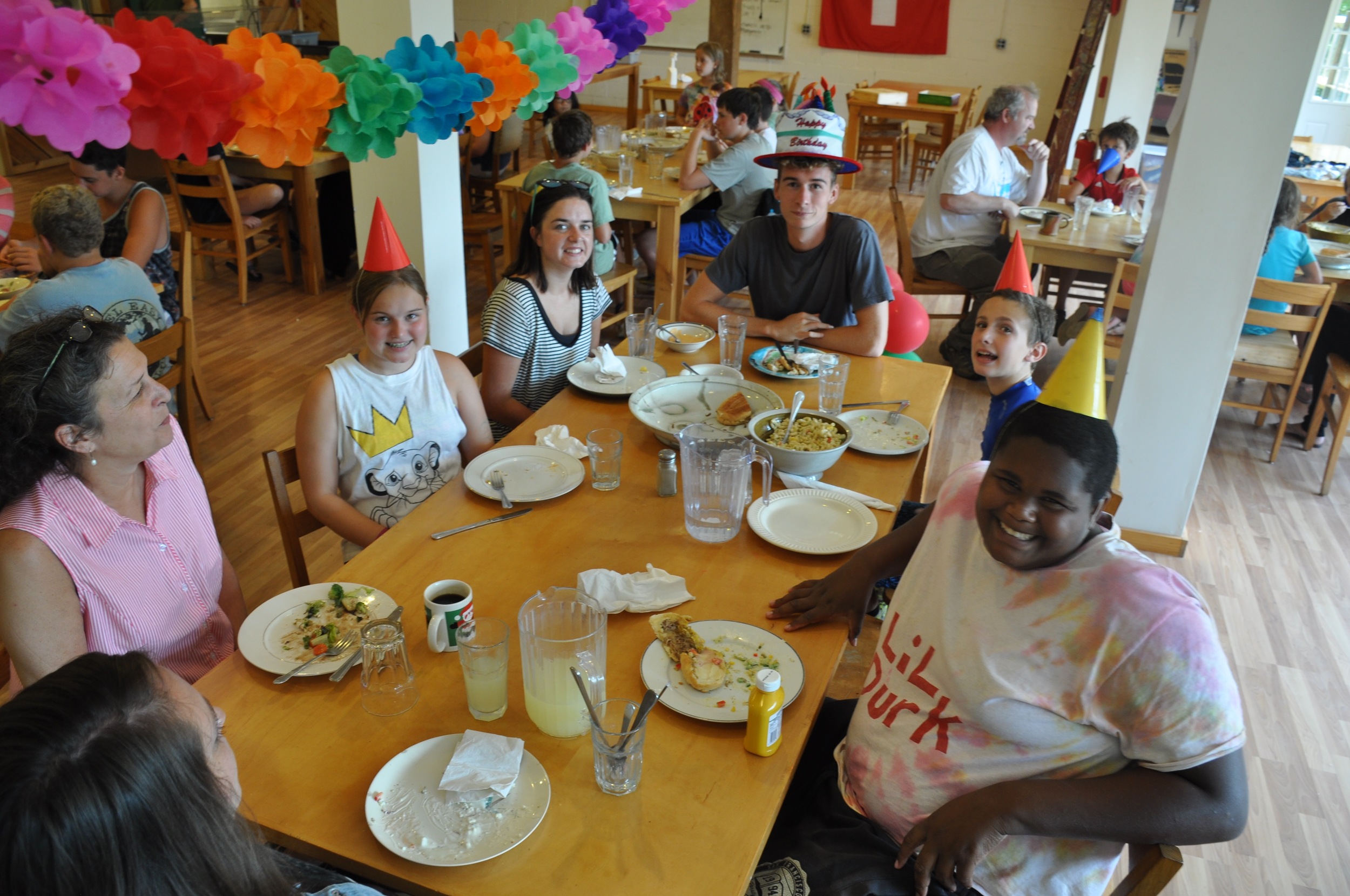
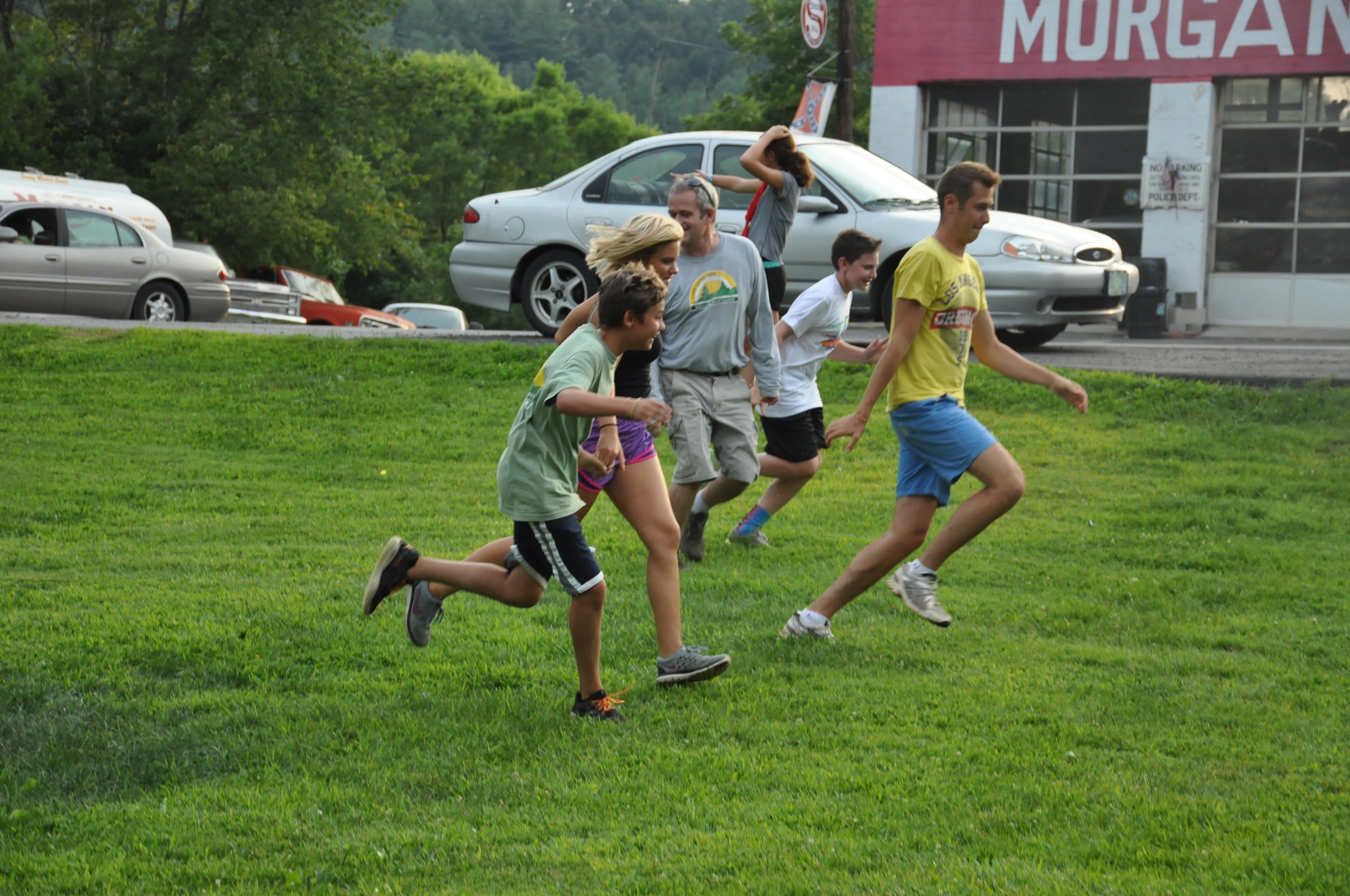
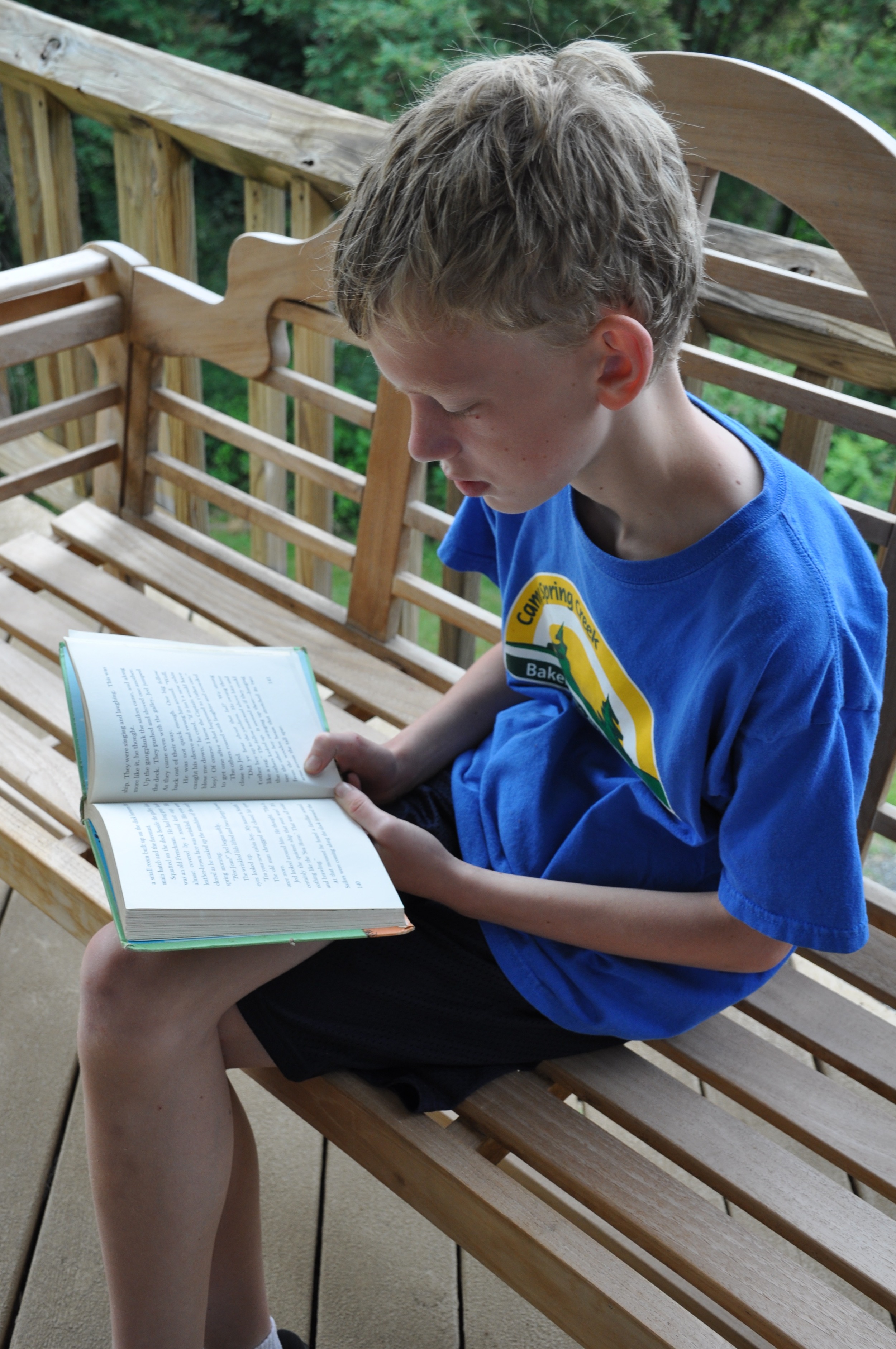
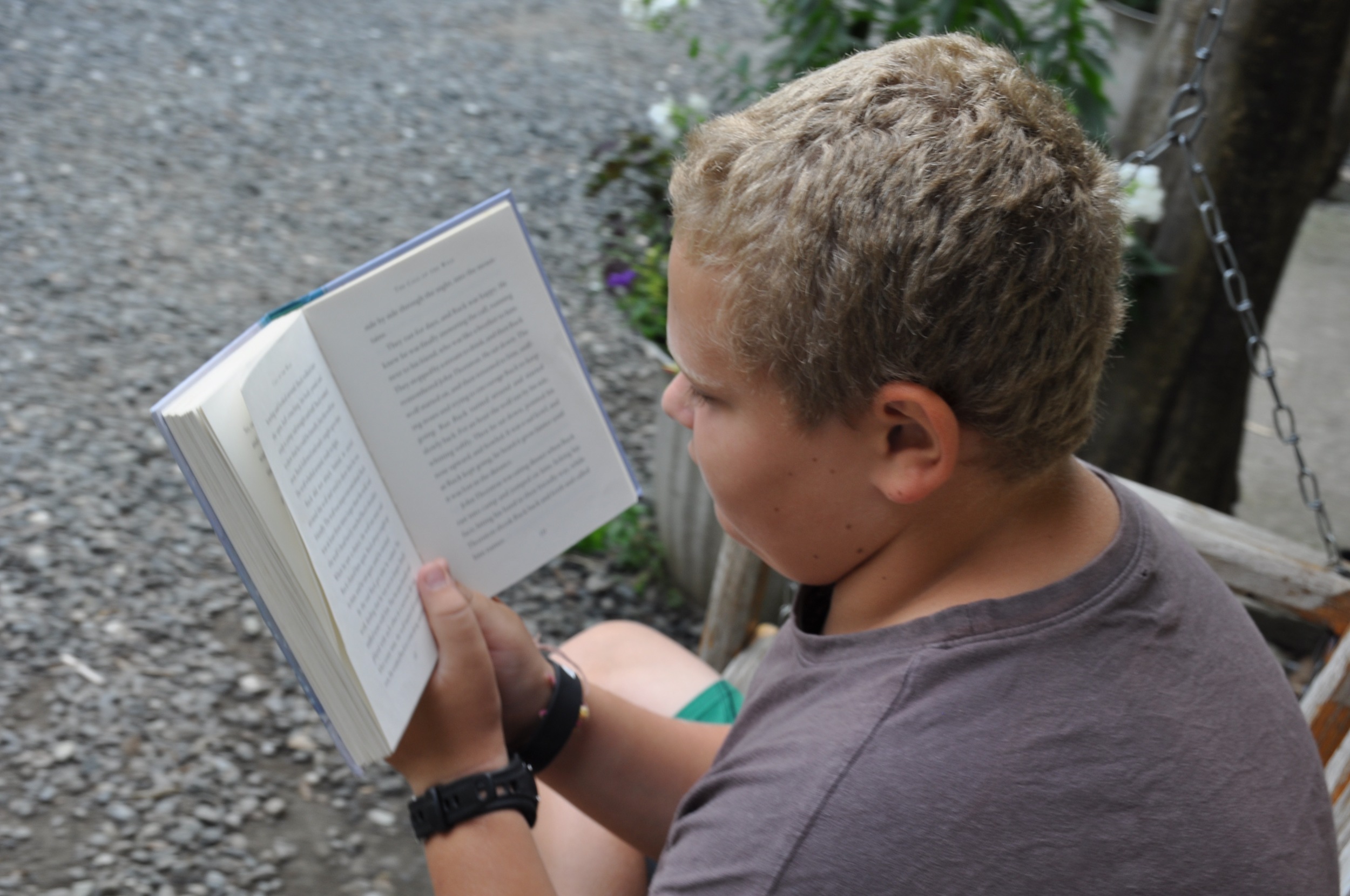
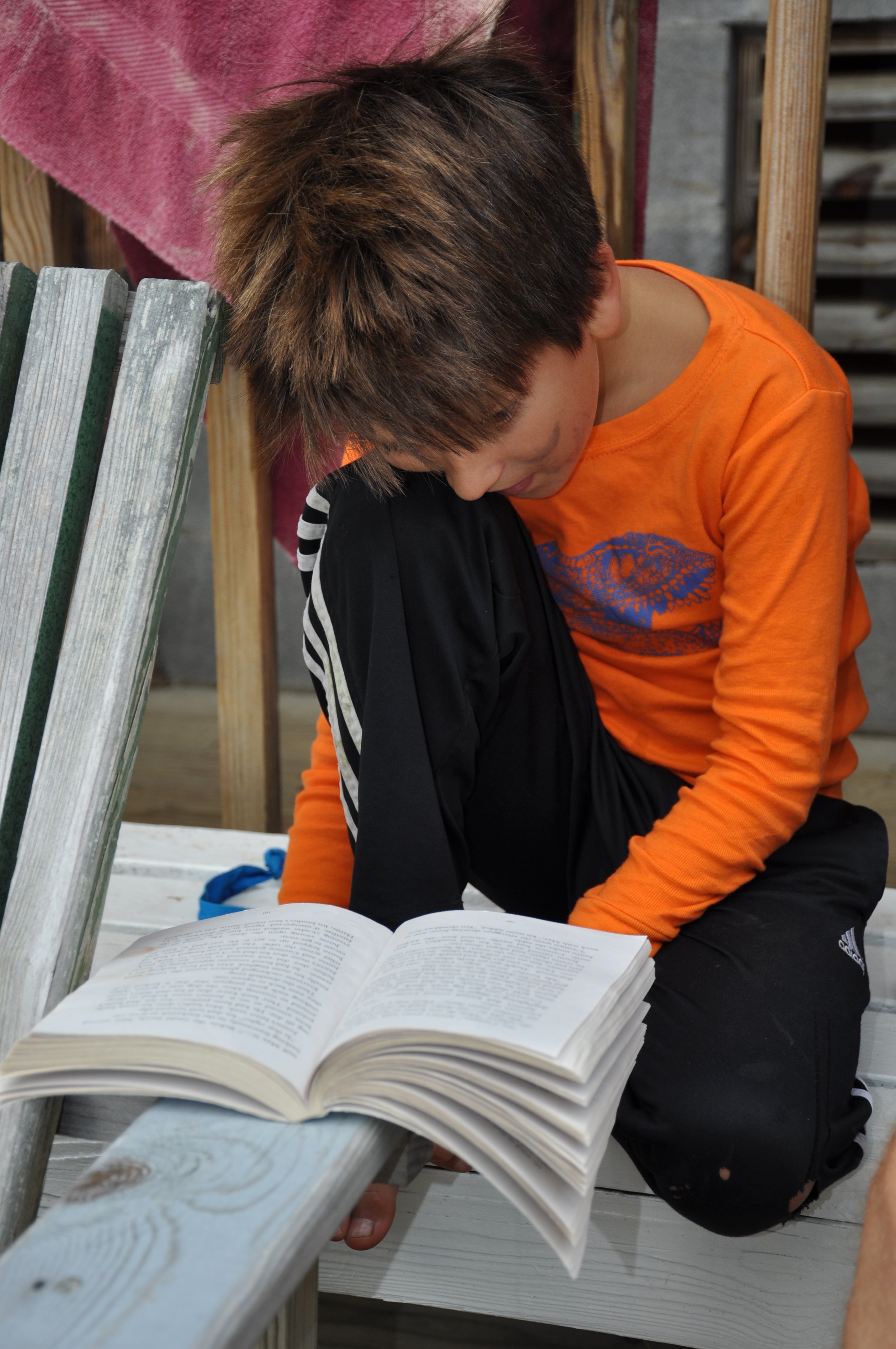

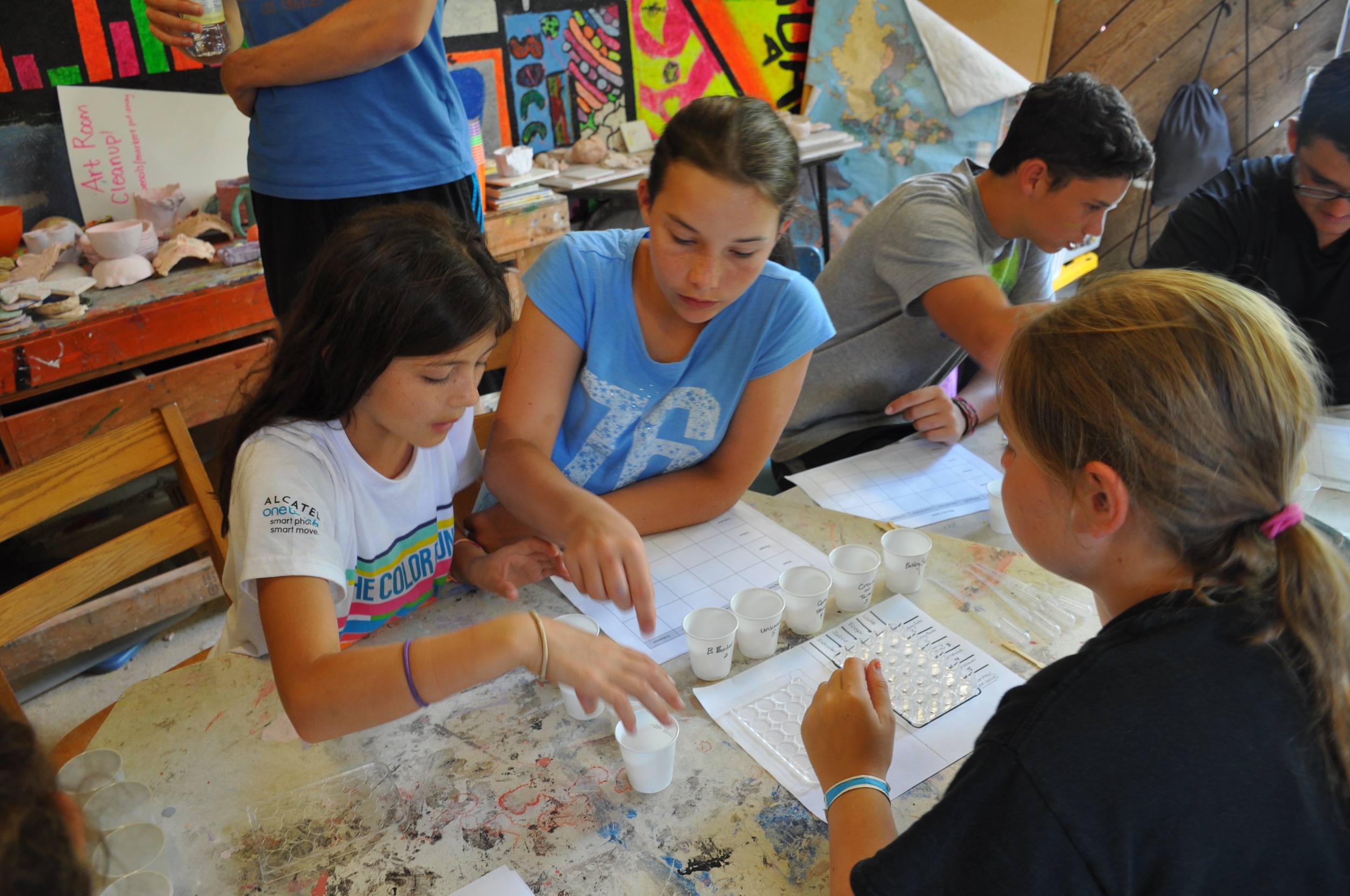
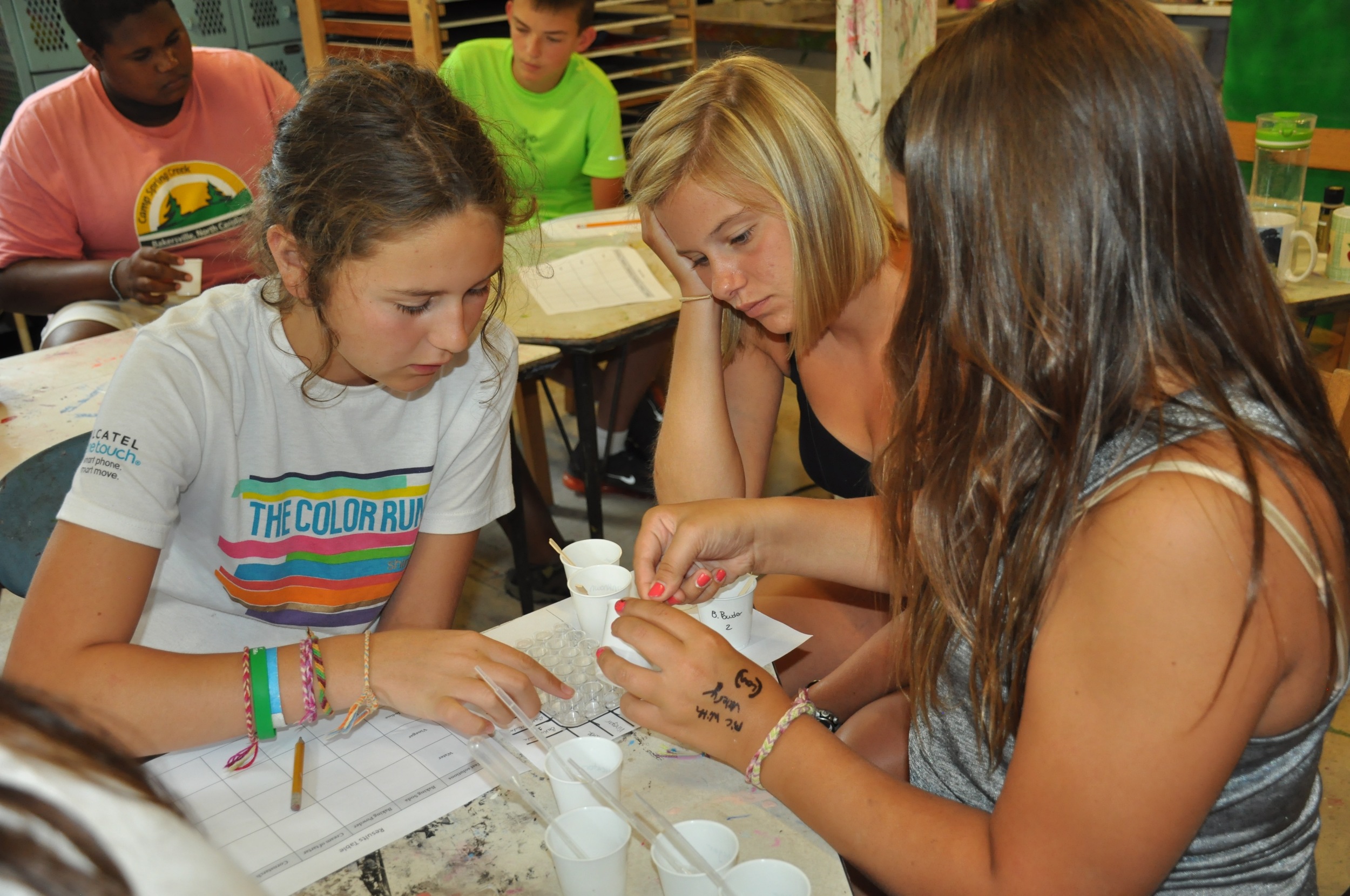
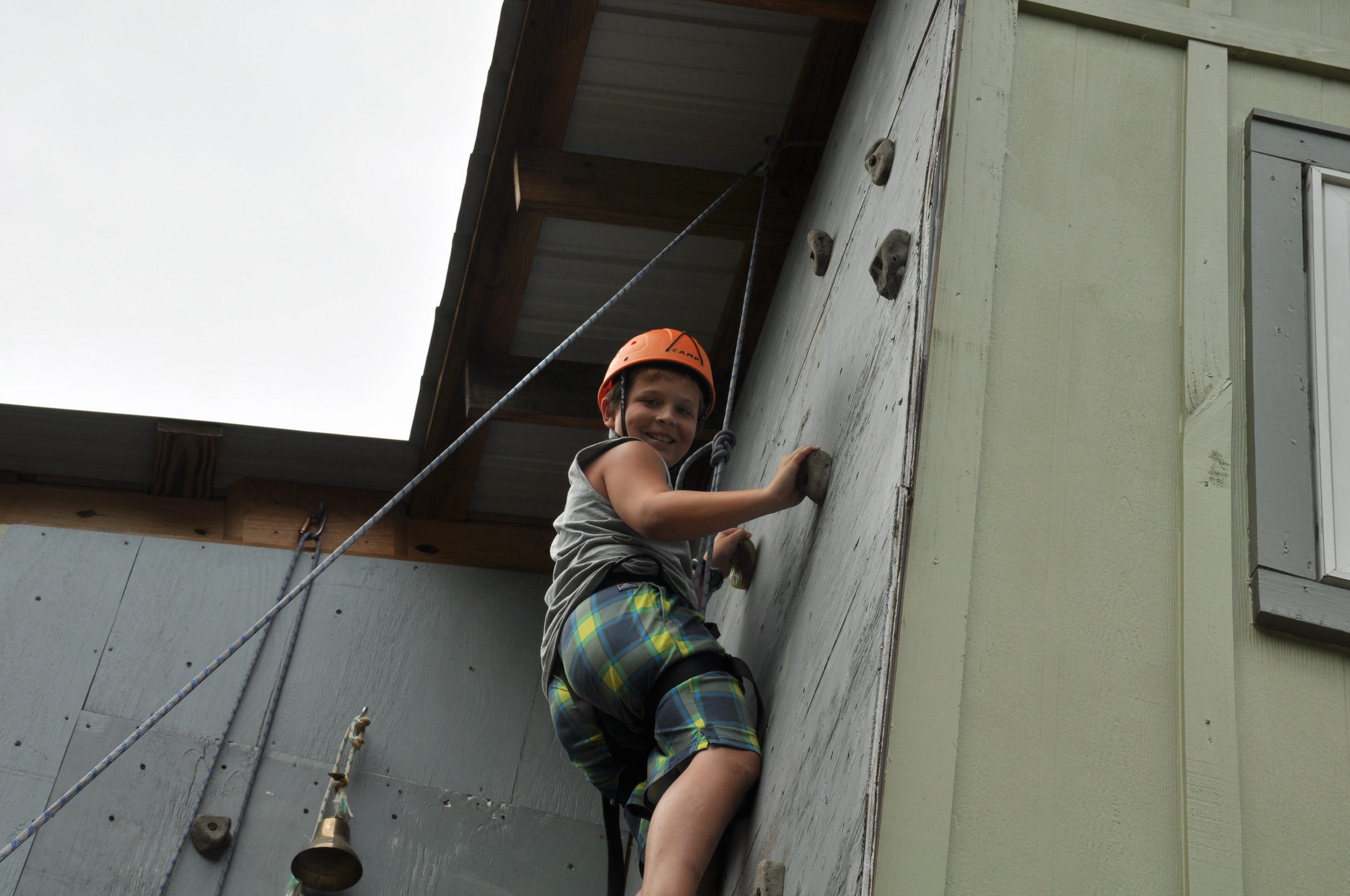
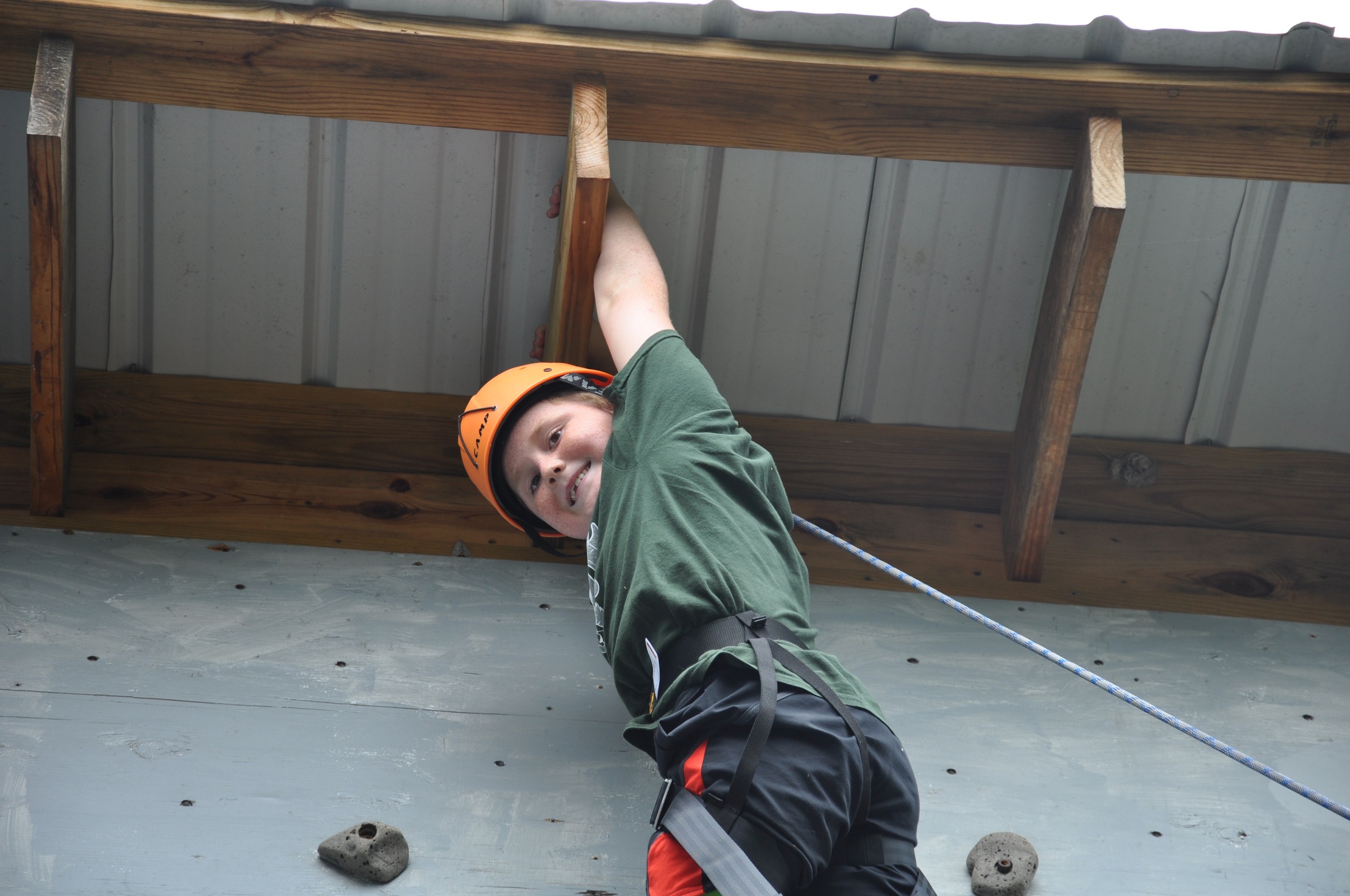


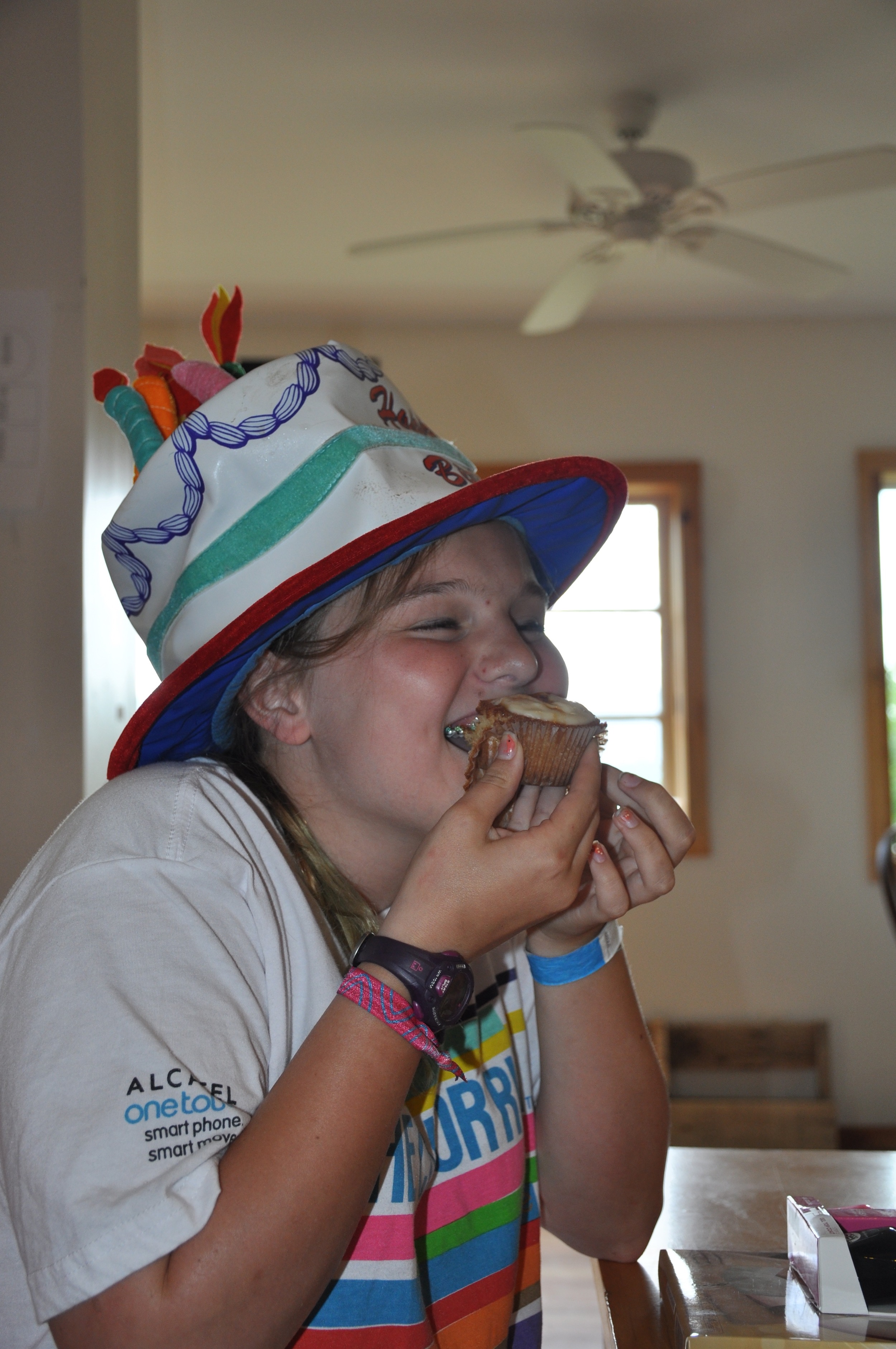
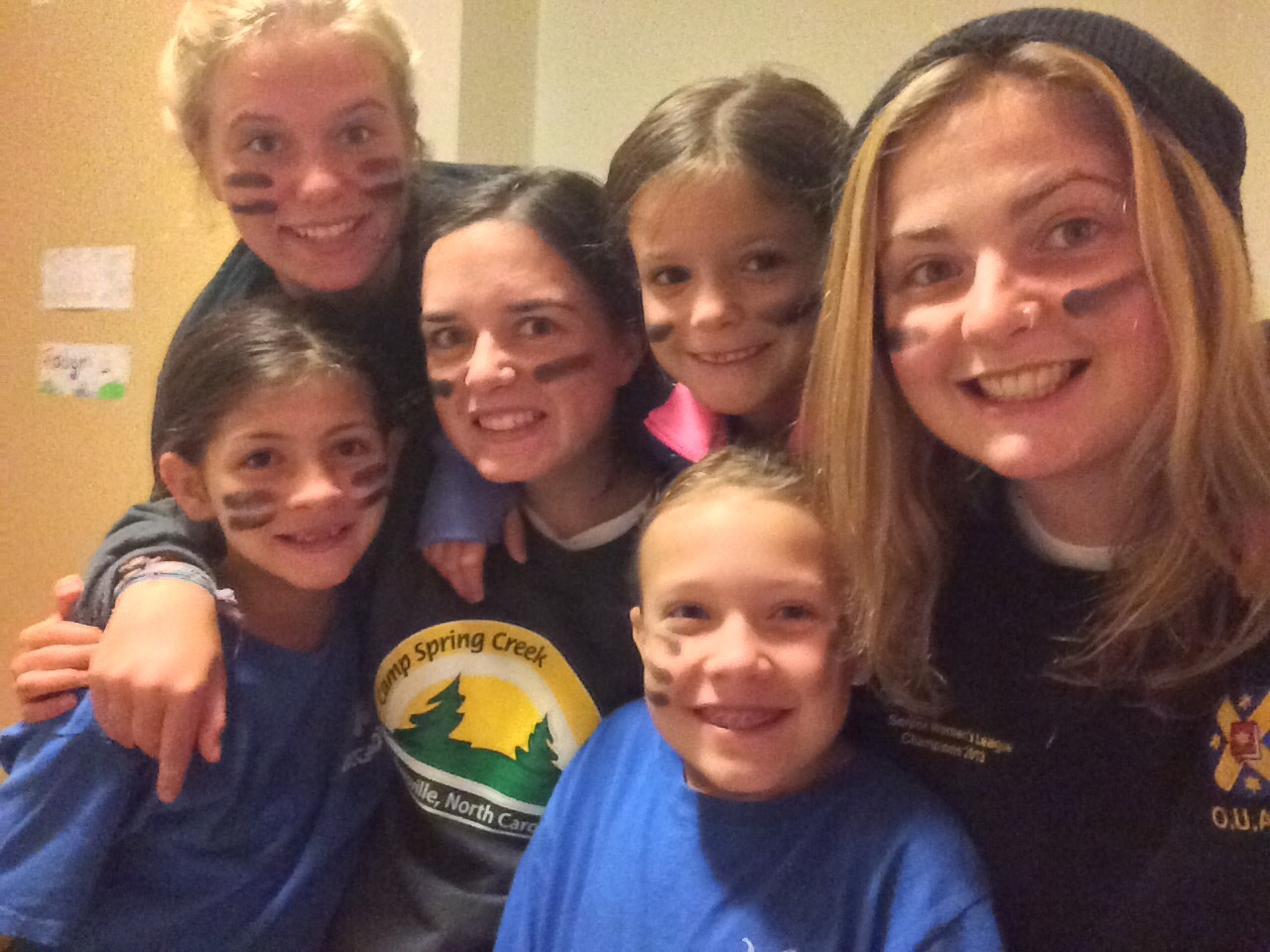
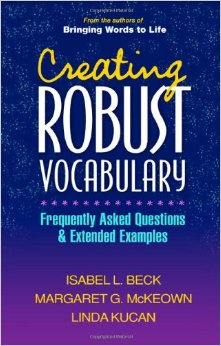 rams. First,
rams. First, 